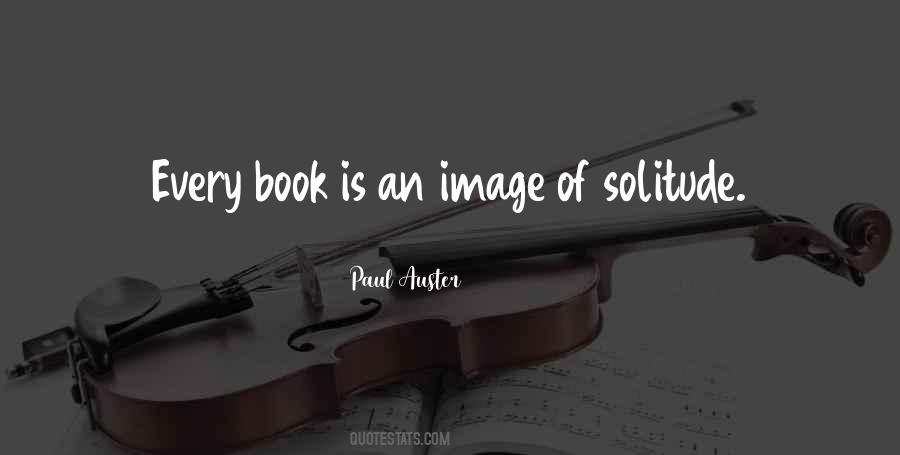
Top 100 Paul Auster Quotes
#1. As my friend George Oppen once said to me about getting old: what a strange thing to happen to a little boy.
Paul Auster
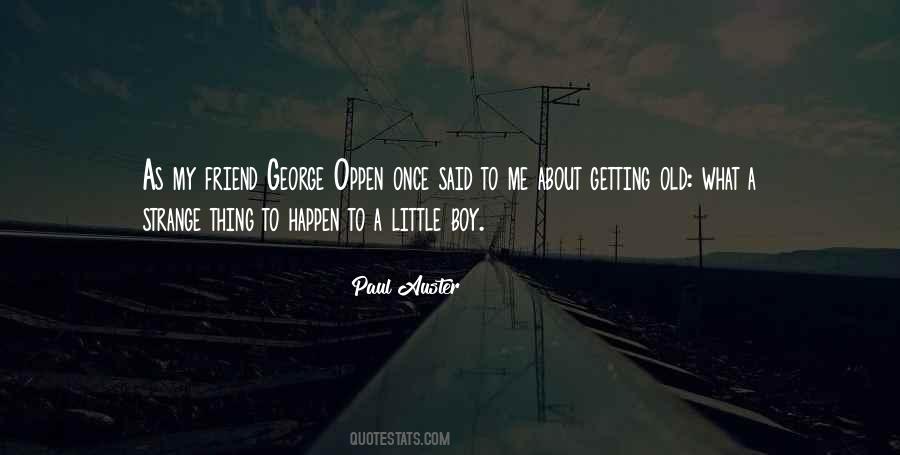
#2. And even if there was an end, it seemed doubtful that I would ever know about it - which meant that the story would go on and on, secreting its poison inside me forever.
Paul Auster
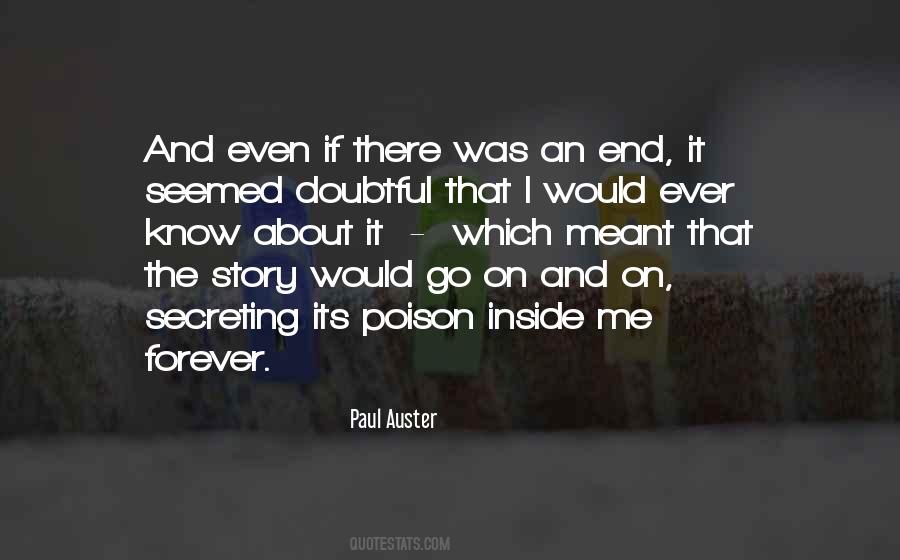
#3. When I start, I have a feeling for the characters, and maybe the shape of the story. Sometimes I might even have the last sentence in mind. But, no book I've ever written has ever ended the way I thought it would. Characters disappear, others come forward. Once you start writing, everything changes.
Paul Auster
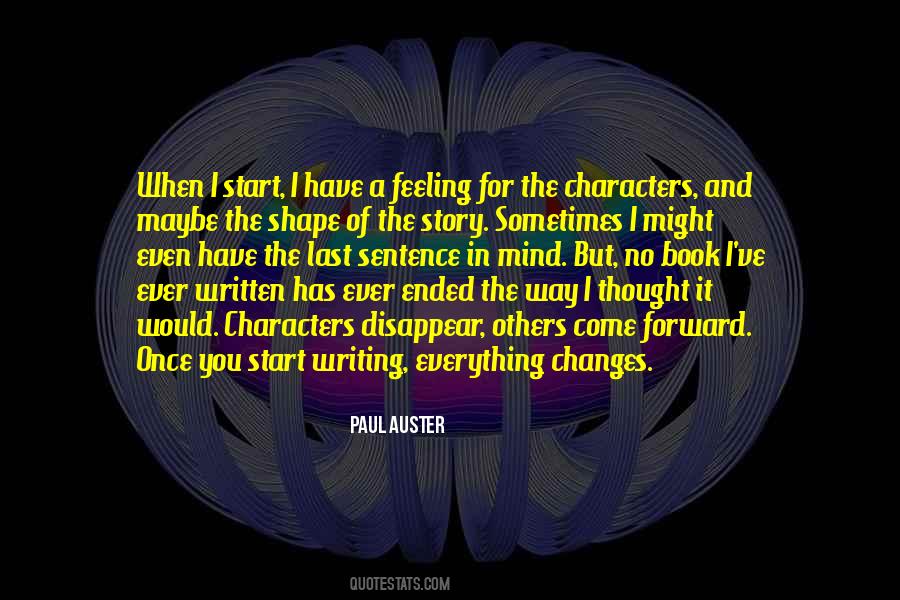
#4. All I wanted to do was write - at the time, poems, and prose, too. I guess my ambition was simply to make money however I could to keep myself going in some modest way, and I didn't need much, I was unmarried at the time, no children.
Paul Auster
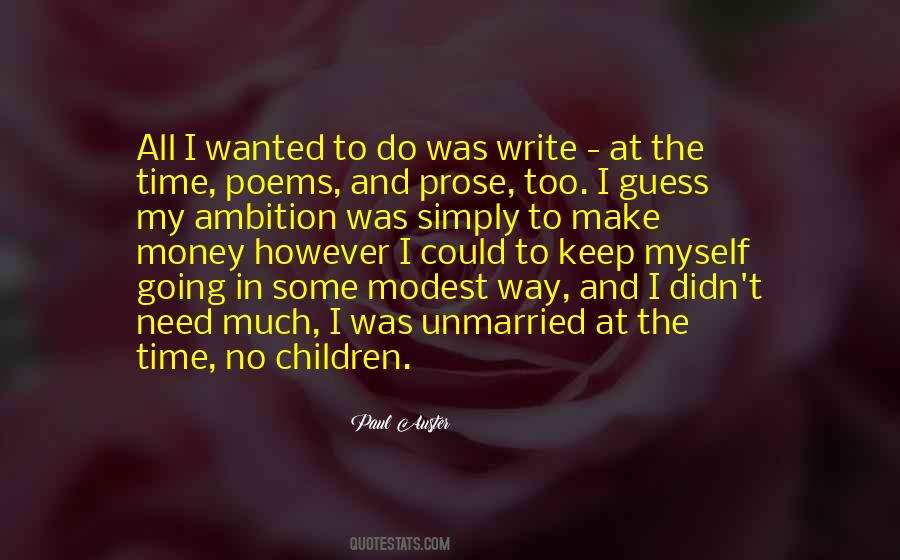
#5. As I write this now, I realize that even on that first day I had slipped through a hole in the earth, that I was falling into a place where I had never been before.
Paul Auster

#6. Would it not be better to learn the truth once and for all instead of living in a state of perpetual uncertainty?
Paul Auster
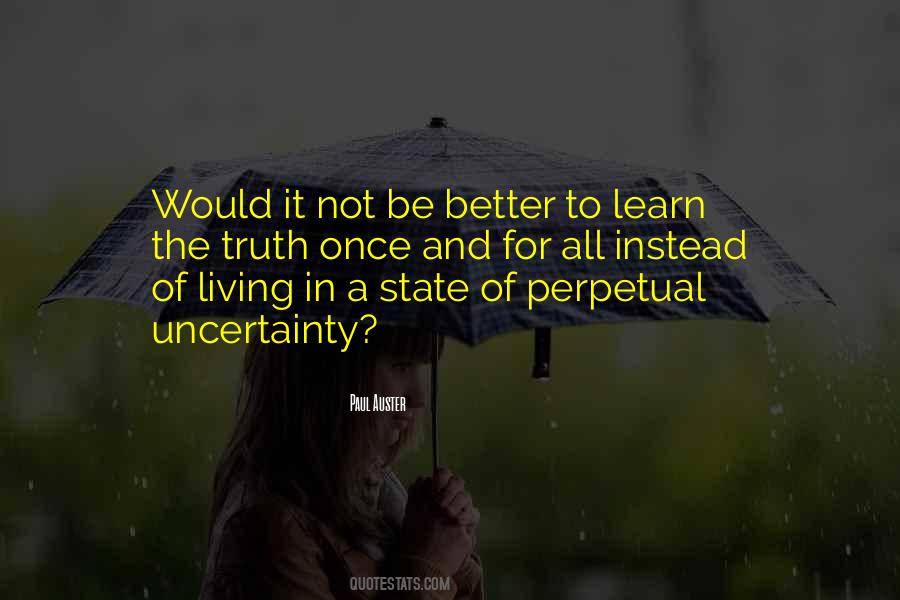
#7. Every man is the author of his own life.
Paul Auster
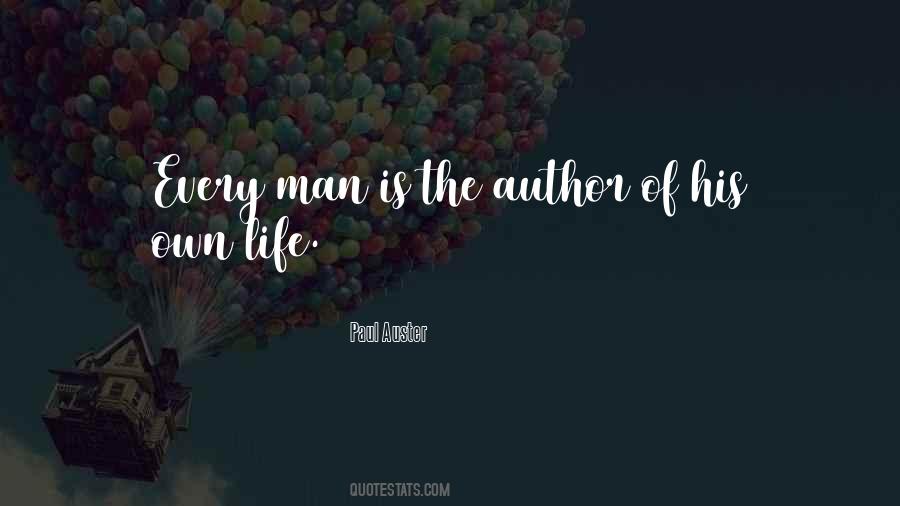
#8. When a person is lucky enough to live inside a story, to live inside an imaginary world, the pains of this world disappear. For as long as the story goes on, reality no longer exists.
Paul Auster
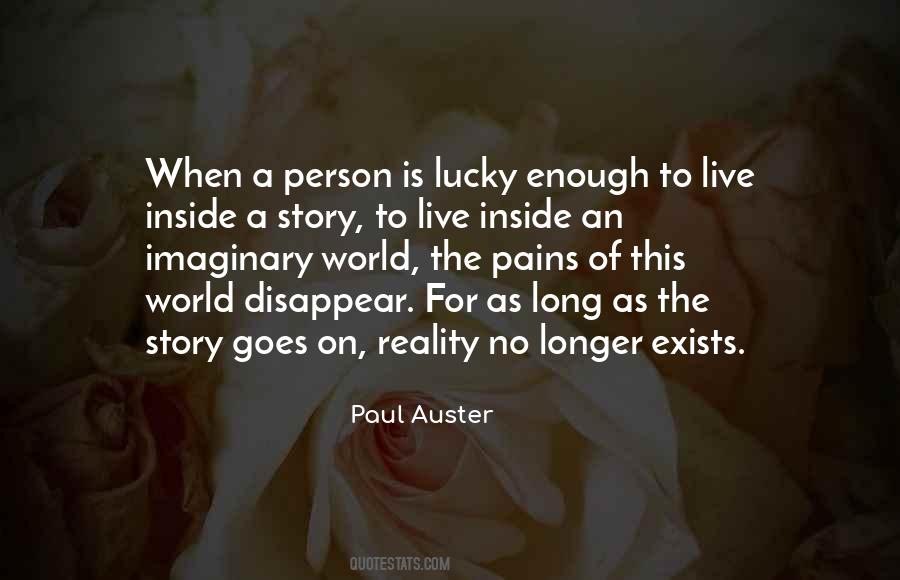
#9. I really, truly believe that writing comes out of the body; of course, the mind is working as well, but it's a double thing and that doubleness is united. I mean, you can't separate persona from psyche; you just can't do it.
Paul Auster
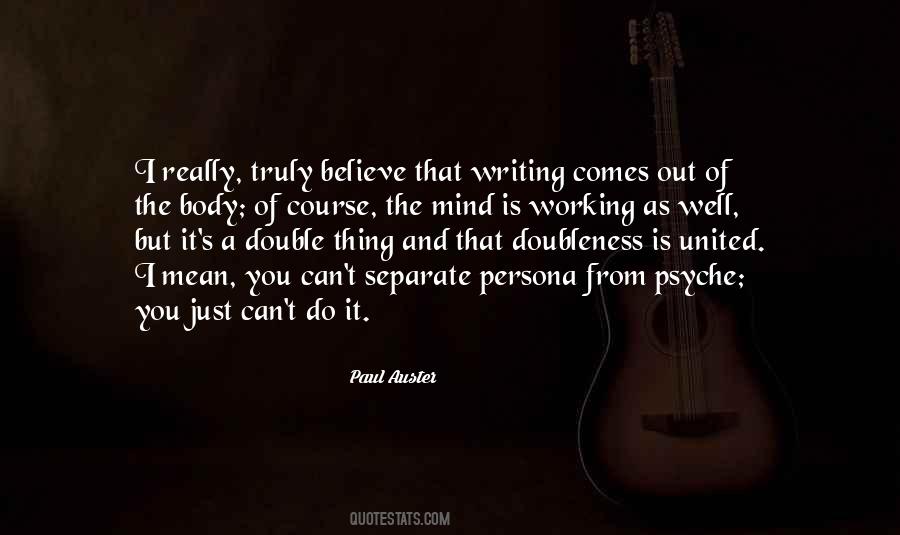
#10. I walk around the world like a ghost, and sometimes I question
whether I even exist. Whether I've ever existed at all.
Paul Auster
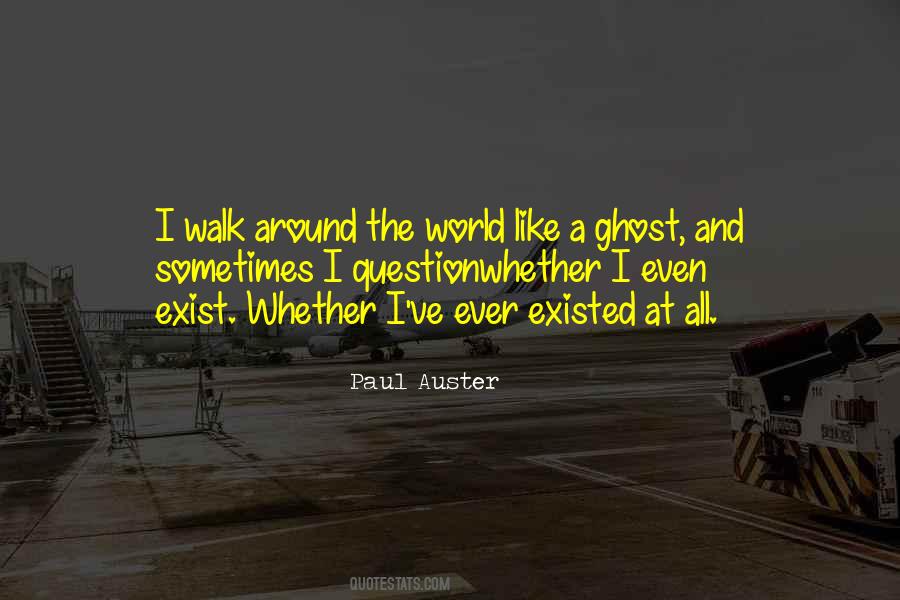
#11. Let me tell you, there's no better medicine than a friendly card game for sloughing off the cares of a workaday world.
Paul Auster
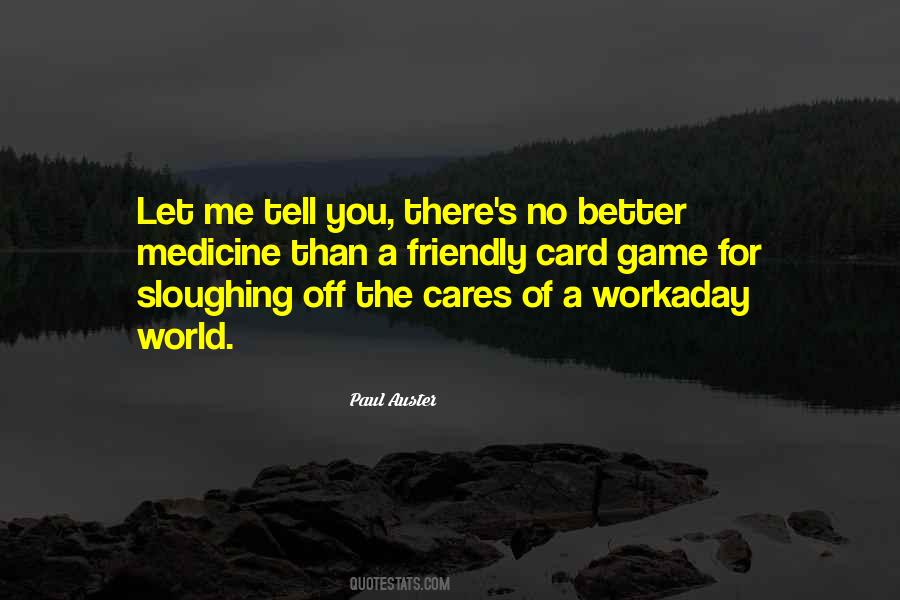
#12. Les moments de crise produsent un redoublement de vie chez les hommes.
Moments of crisis produce a redoubled vitality in men. Or, more succinctly perhaps: Men don't begin to live fully until thier backs are against the wall.
Paul Auster
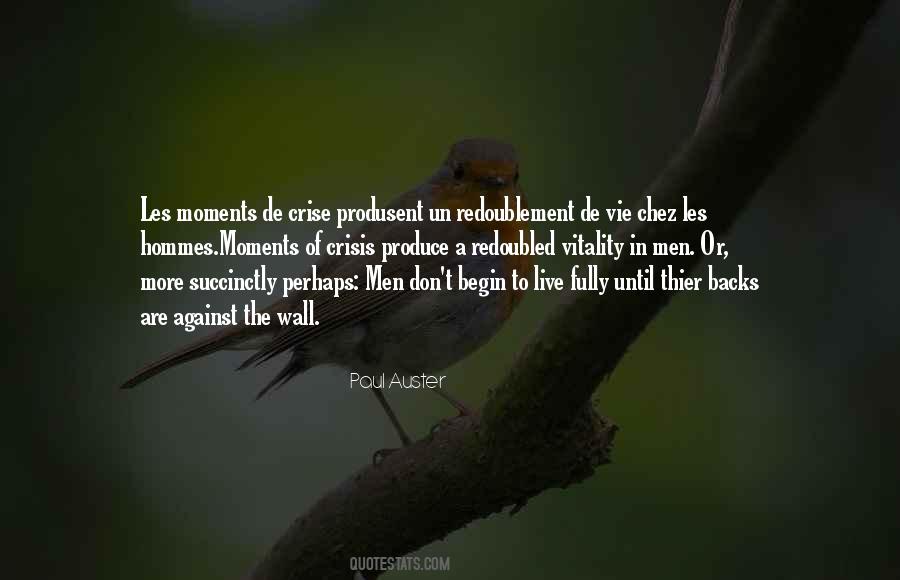
#13. In the end, each life is irreducible to anything other than itself. Which is as much as to say: lives make no sense.
Paul Auster
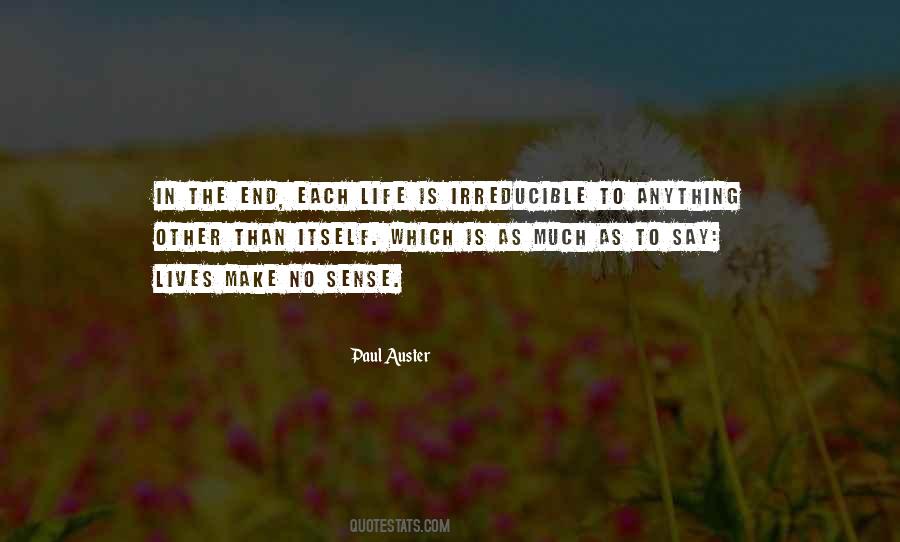
#14. Stories happen only to those who are able to tell them, someone once said. In the same way, perhaps, experiences present themselves only to those who are able to have them.
Paul Auster
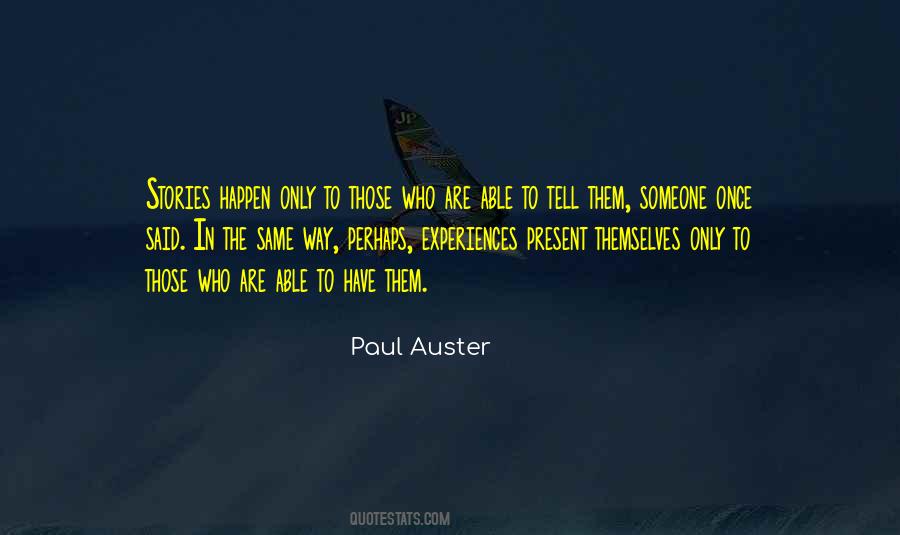
#15. Six days ago, a man blew himself up by the side of a road in northern Wisconsin.
Paul Auster
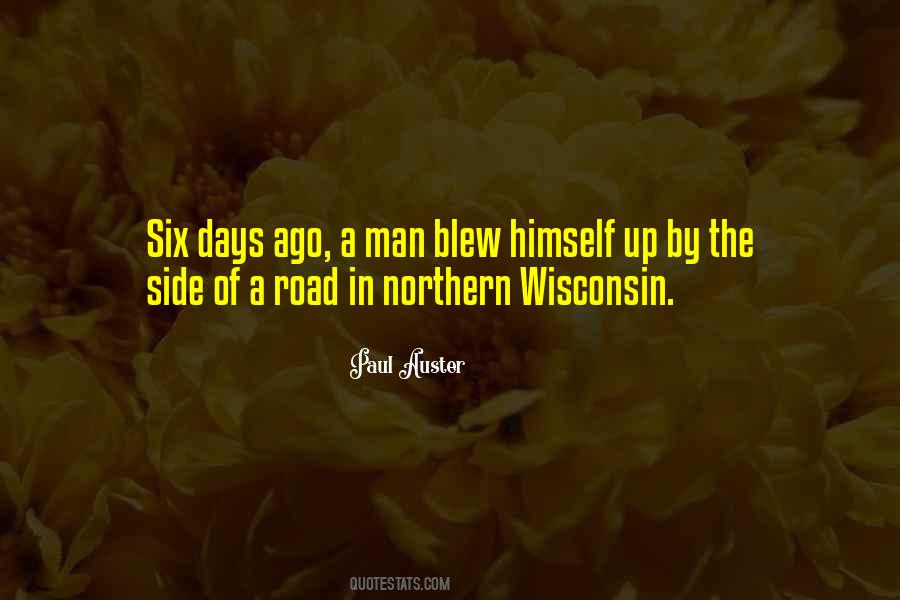
#16. Once you fell in love with her, you
loved her until the day you died.
Paul Auster
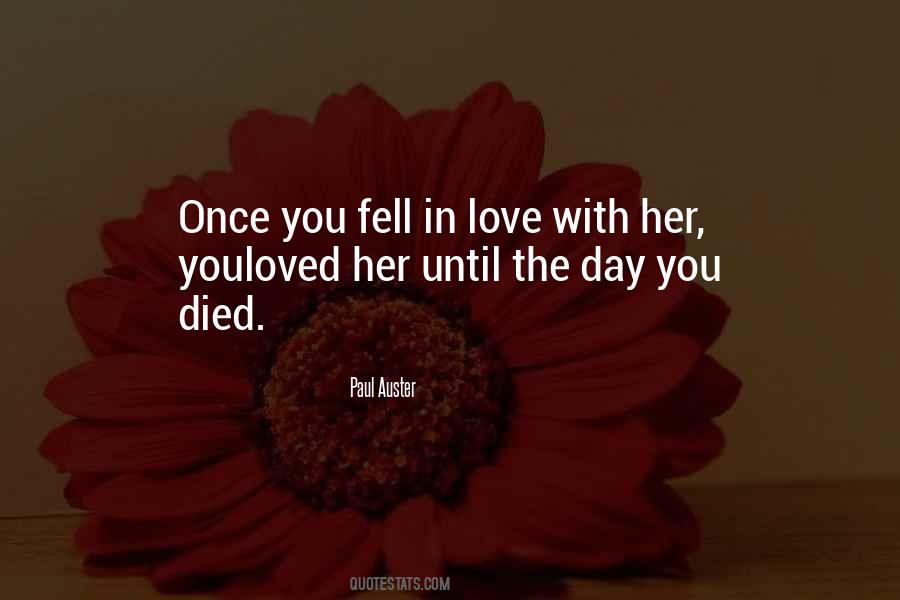
#17. I was looking for a quiet place to die.
Paul Auster

#18. Still, I had a hunch about it, and if there's one thing I've learned in my long and stupid career as a man, it's the importance of listening to my hunches.
Paul Auster
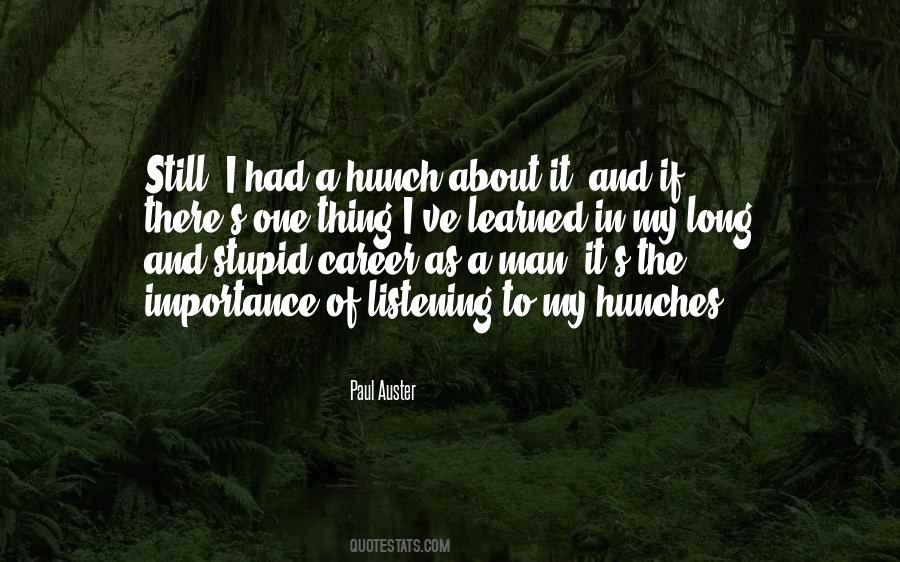
#19. Memory is the space in which a thing happens for a second time.
Paul Auster
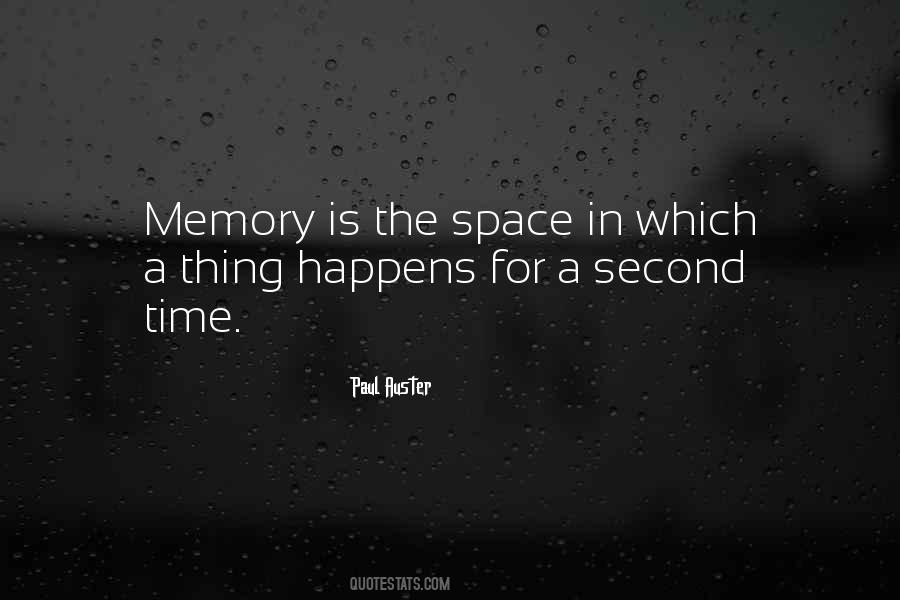
#20. I'm not a man deeply interested in technology. It eludes me.
Paul Auster
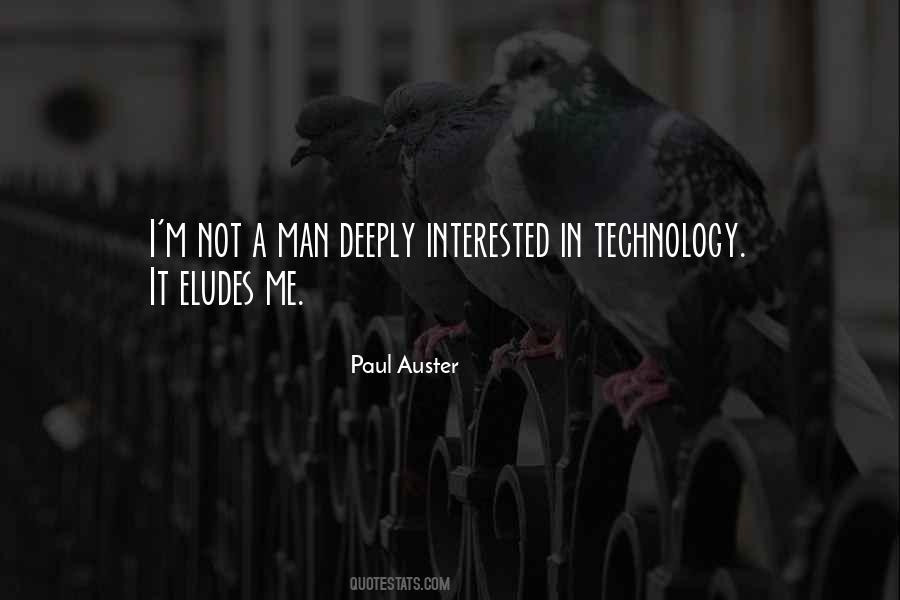
#21. No one can say where a book comes from, least of all the person who writes it. Books are born out of ignorance, and if they go on living after they are written, it's only to the degree that they cannot be understood.
Paul Auster

#22. Perhaps when we shrink down to almost nothing, we will at last find one another. Life is, after all, very difficult. Most of us die here simply because we forget to breathe.
Paul Auster
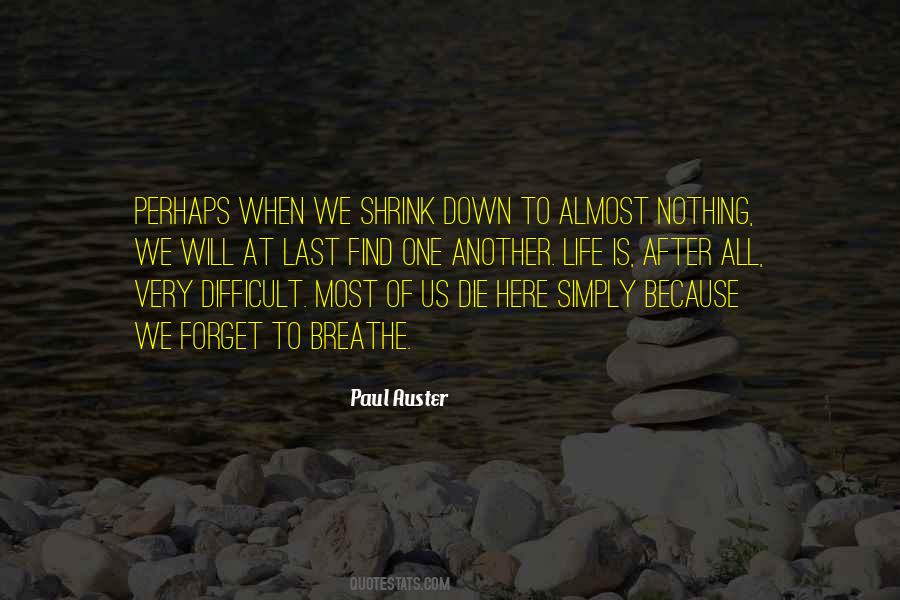
#23. As long as a man had the courage to reject what society told him to do, he could live life on his own terms. To what end? To be free. But free to what end? To read books, to write books, to think.
Paul Auster
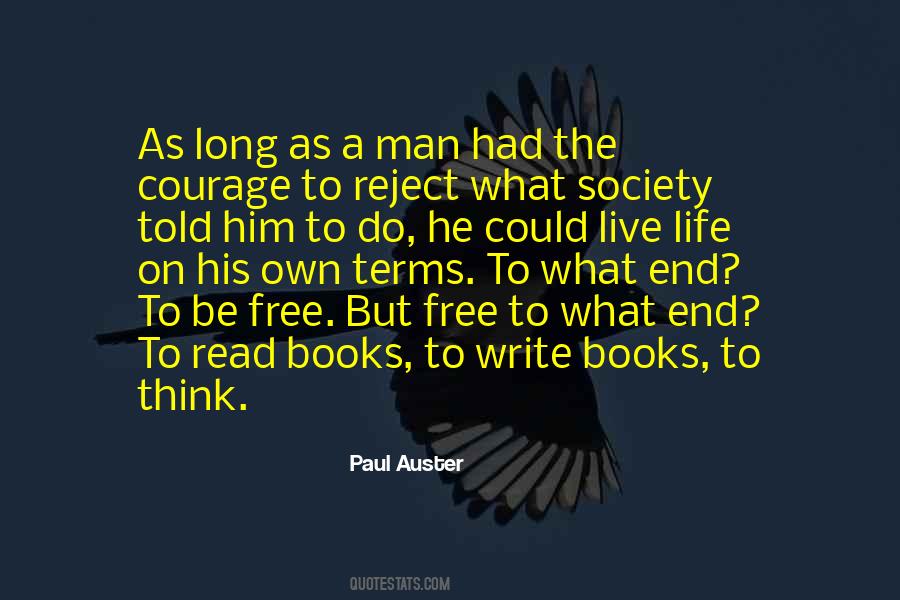
#24. He wondered why he turned so sentimental.
That's what happened when you have no one to talk to.
Paul Auster
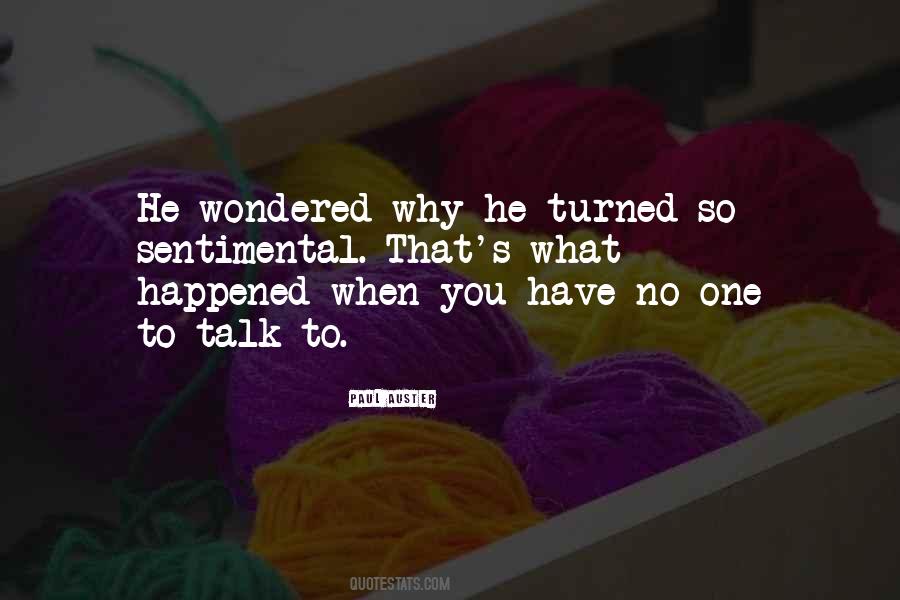
#25. I'm generous. I give good tips. It's just - the way I live my life, ironically enough, is: I don't want anything. I'm not a consumer. I don't crave objects.
Paul Auster

#26. Con men and tricksters run the world. Rascals rule. And do you know why?
because they are hungier than we are. because they know what they want. because they believe in life more than we do.
Paul Auster
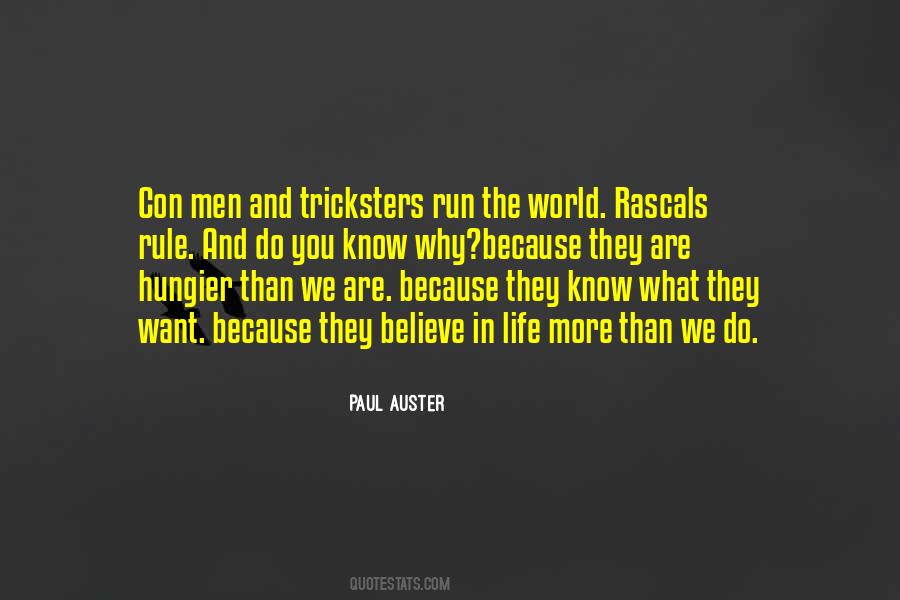
#27. In Invisible there's a lot about childhood, the death of the brother and then the relationship between the brother and sister.
Paul Auster

#28. Betty died of a broken heart. Some people laugh when they hear that phrase, but that's because they don't know anything about the world. People die of broken hearts. It happens every day, and it will go on happening to the end of time.
Paul Auster
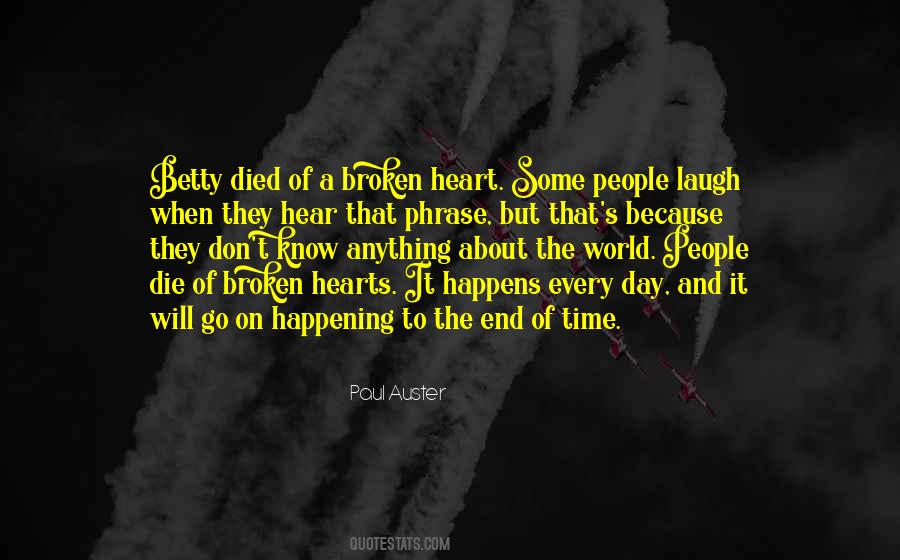
#29. You can look at my autobiographical pieces as source books ... But, you see, my fiction doesn't revolve around autobiographical questions.
Paul Auster
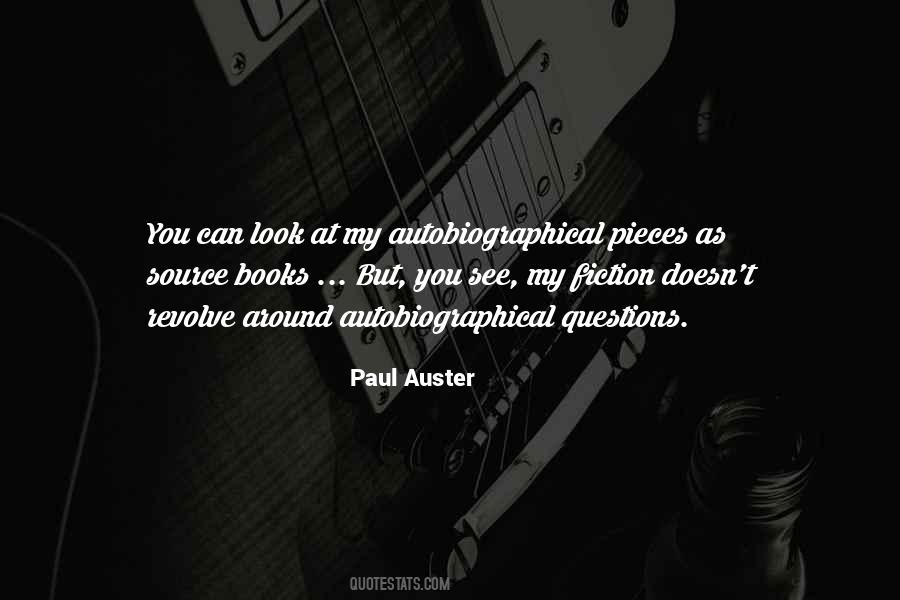
#30. But that was the beauty of this particular game. The moment you lost, you won.
Paul Auster
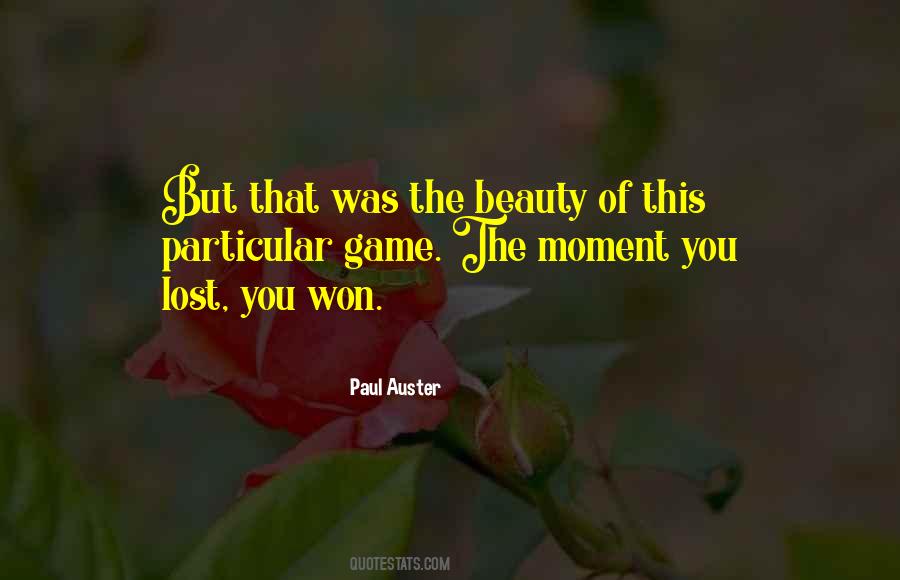
#31. The moon people do not eat by swallowing food but by smelling it. Their money is poetry - actual poems, written out on pieces of paper whose value is determined by the worth of the poem itself.
Paul Auster
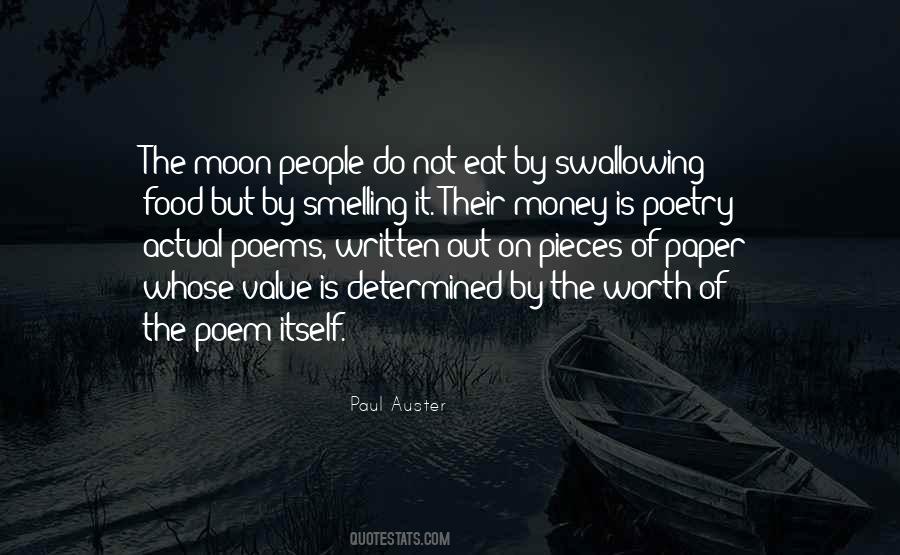
#32. I haven't done any translating for decades now. It's something I did when I was young.
Paul Auster
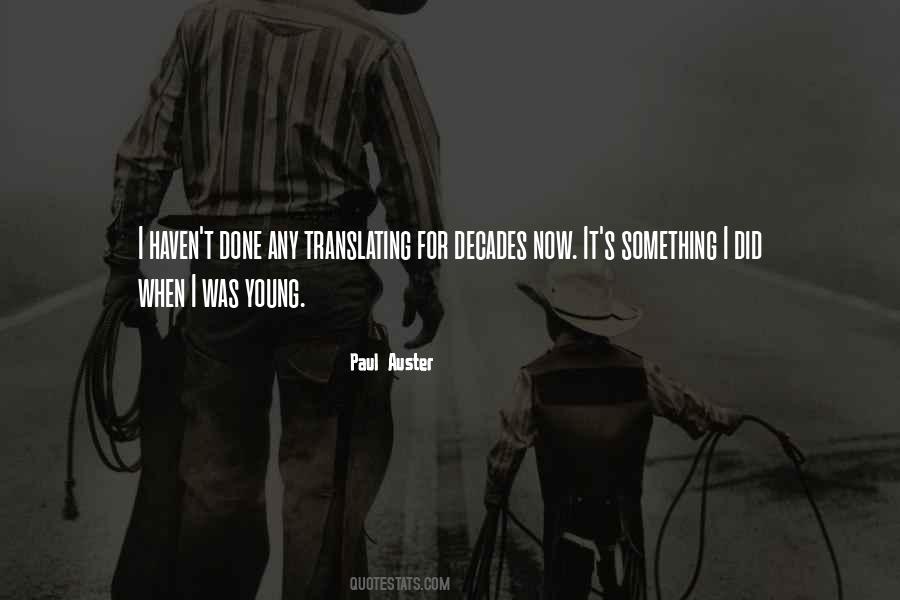
#33. My true place in the world, it turned out, was somewhere beyond myself, and if that place was inside me, it was also unlocatable. This was the tiny hole between self and not-self, and for the first time in my life I saw this nowhere as the exact center of the world.
Paul Auster
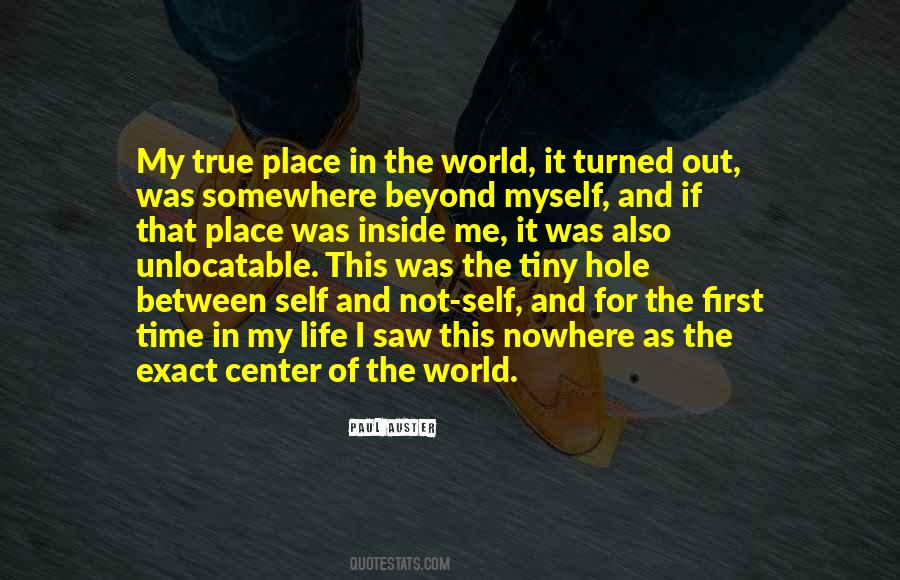
#34. He who lives for an encounter with the unseen becomes the instrument of the seen.
Paul Auster
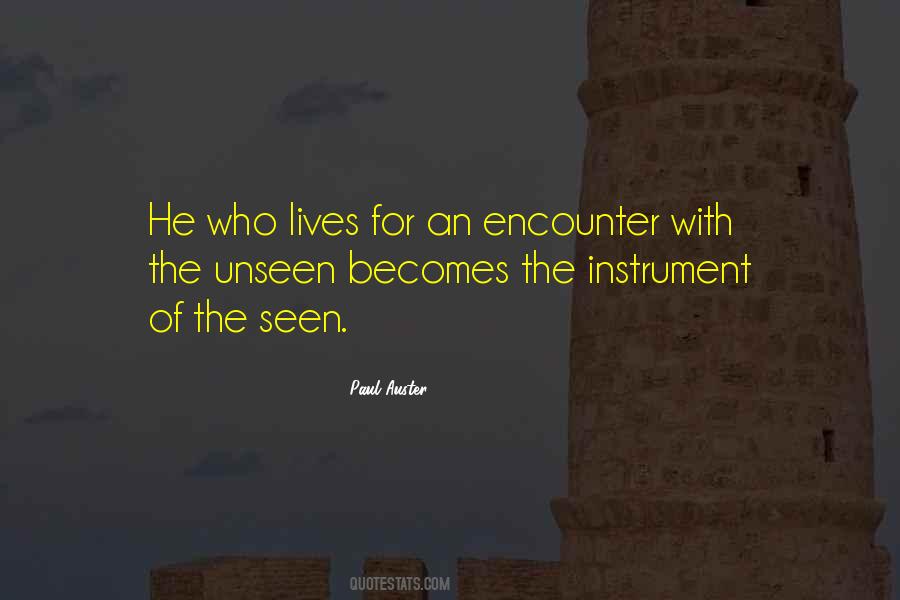
#35. I want to talk about happiness and well being, about those rare, unexpected moments when the voice in your head goes silent and you feel at one with the world.
Paul Auster
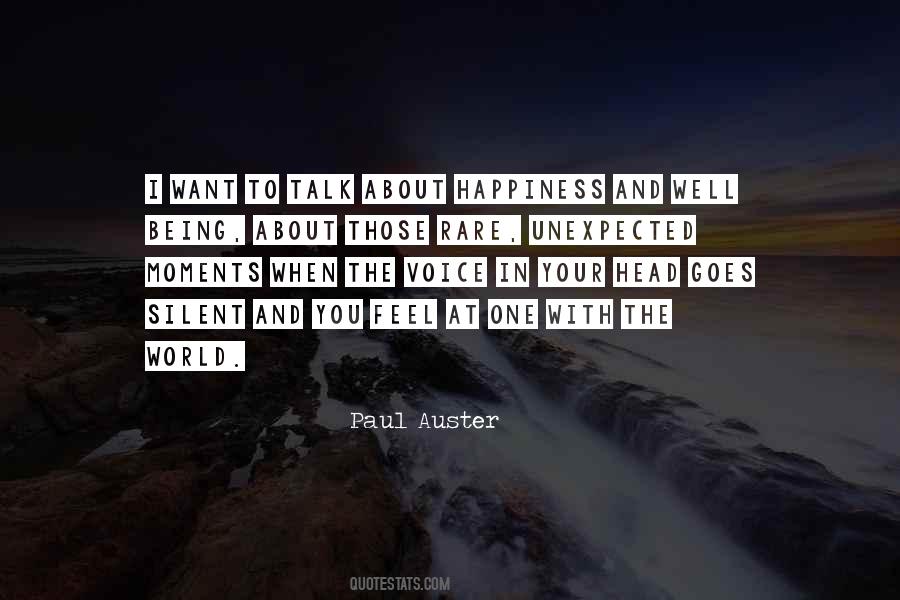
#36. We hear things, but we can't always see them, or, even if we do see them, we're not sure that we're seeing correctly. Hence: Invisible.
Paul Auster
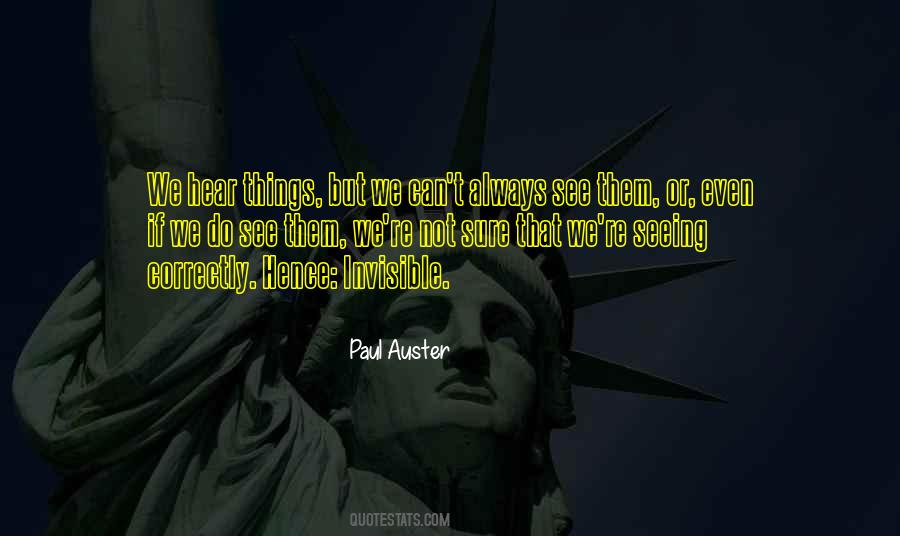
#37. I've written books that have taken me fifteen years, from first sentence to last, and some that only take three or four months.
Paul Auster
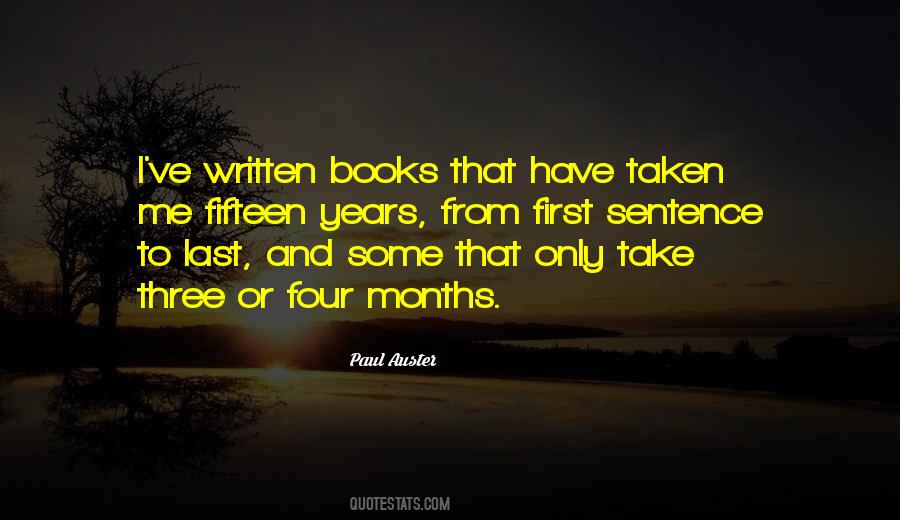
#38. Something was wrong, and while Mr. Bones could scarcely imagine what that thing was, Henry's sadness was beginning to have an effect on him, and within a matter of minutes he had taken on the boy's sadness as his own. Such is the was with dogs.
Paul Auster
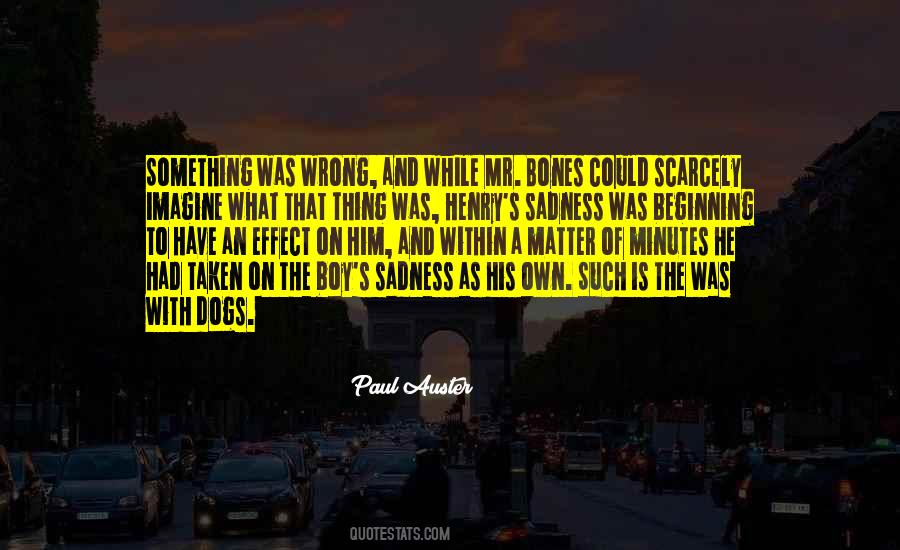
#39. I don't think about the stories so much, as the characters themselves. They live on, and they are almost as real as I am.
Paul Auster
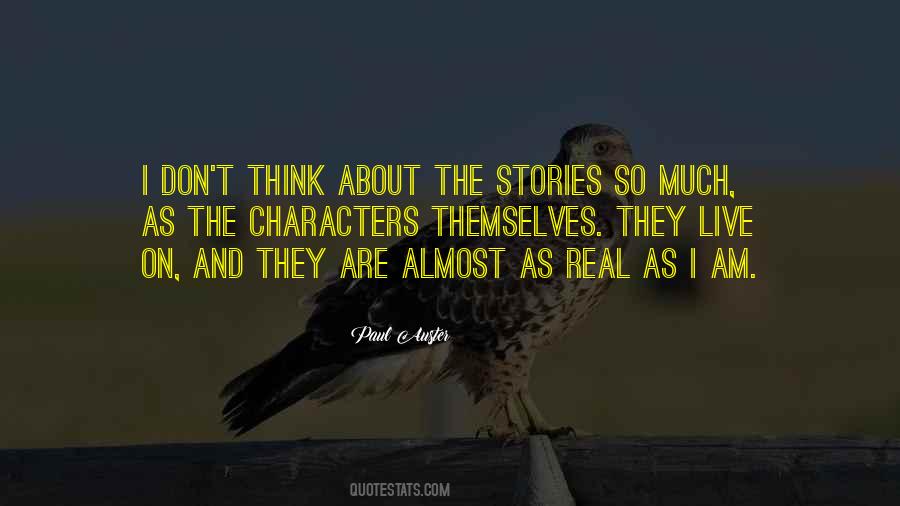
#40. But it would be wrong to say you were unhappy there, for you had no trouble adjusting to your reduced circumstances, you found it invigorating to learn that you could get by on almost nothing, and as long as you were able to write, it made no difference where or how you lived.
Paul Auster
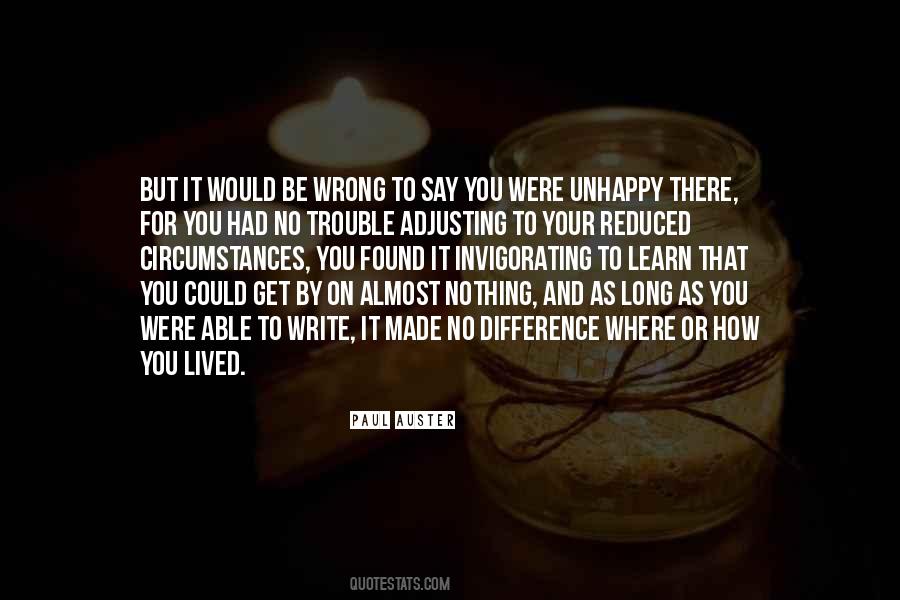
#41. You can't punish someone for a lack of affection, can you? You can't force a child to love you just because he's your child.
Paul Auster

#42. With a computer, you make your changes on the screen and then you print out a clean copy. With a typewriter, you can't get a clean manuscript unless you start again from scratch. It's an incredibly tedious process.
Paul Auster
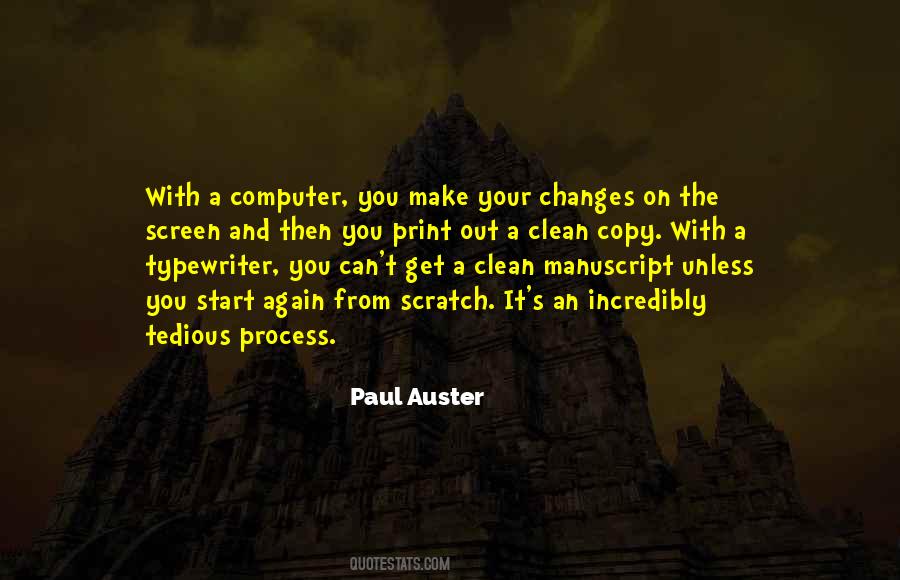
#43. Just think it, and chances are it will happen.
Paul Auster
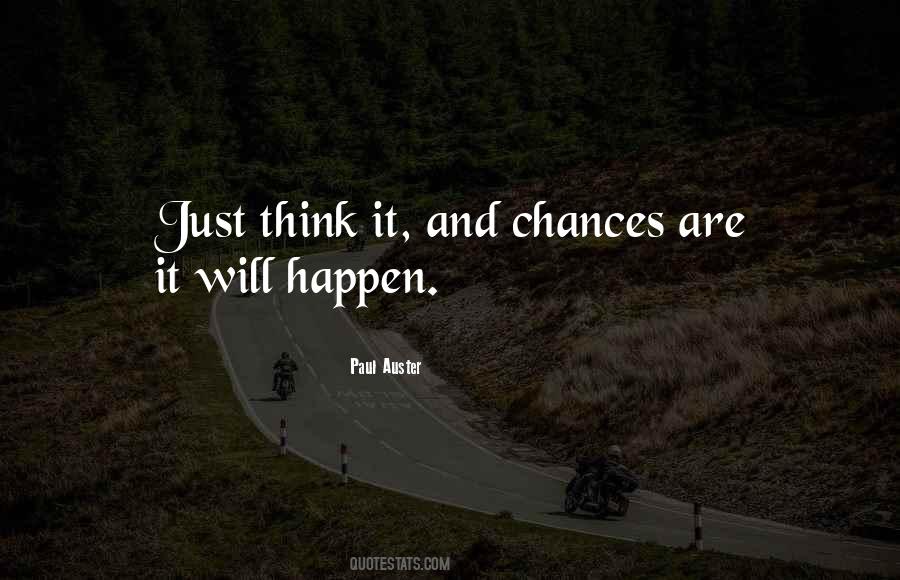
#44. That work was what appealed to him most about their conversations.
Tom liked having to think fast, and he found it invigorating
to push his mind in unaccustomed directions for a change,
to be forced to stay on his toes.
Paul Auster
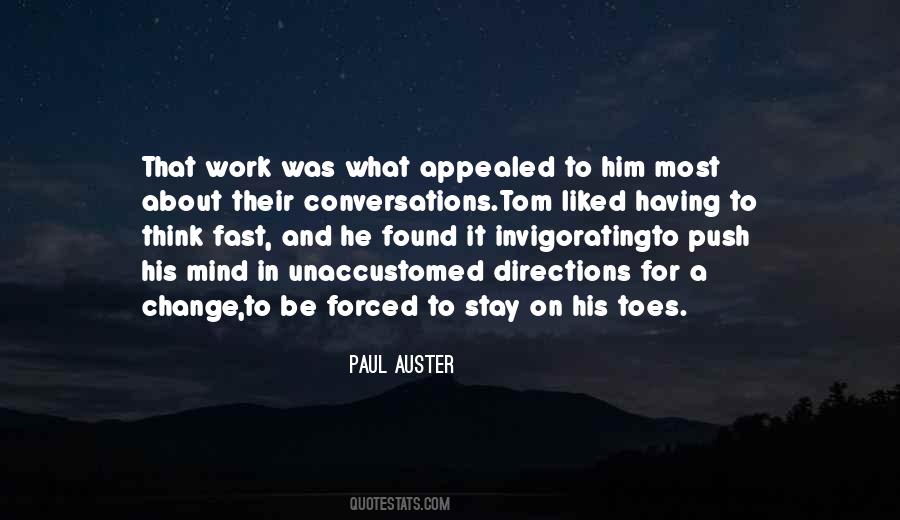
#45. Writing makes you feel that there is a reason to go on living. If I couldn't write, I would stop breathing.
Paul Auster
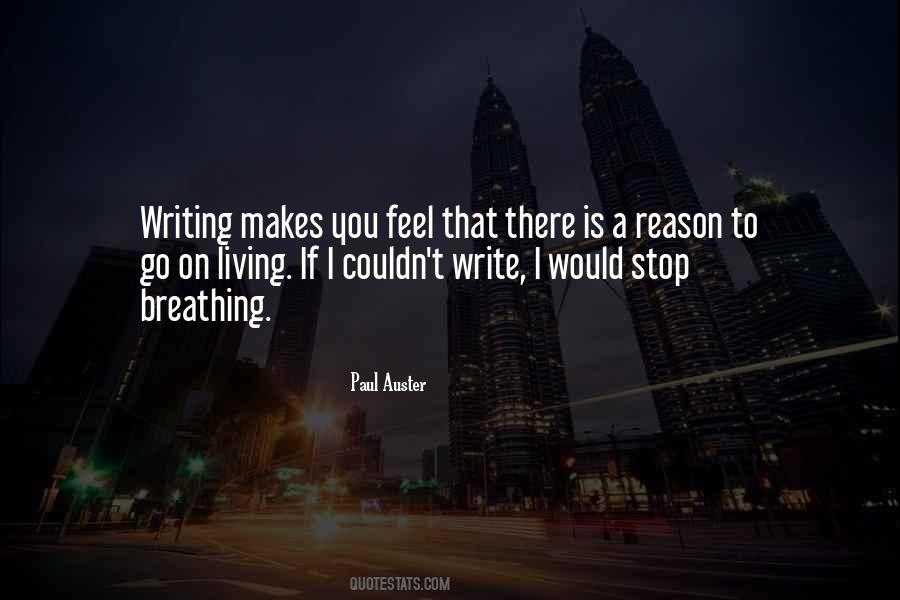
#46. It was something like the word 'it' in the phrase 'it is raining' or 'it is night'. What that 'it' referred to Quinn had never known
Paul Auster
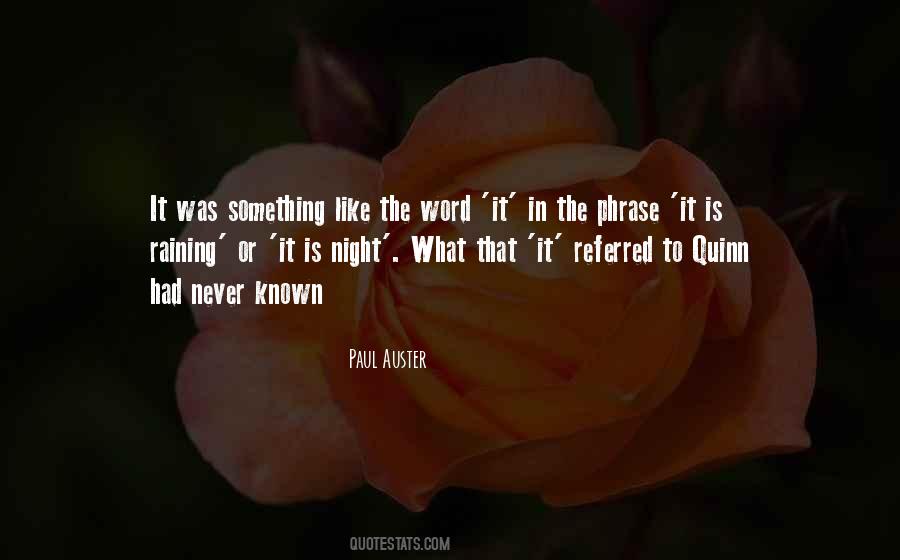
#47. Changing your mind is probably one of the most beautiful things people can do. And I've changed my mind about a lot of things over the years.
Paul Auster
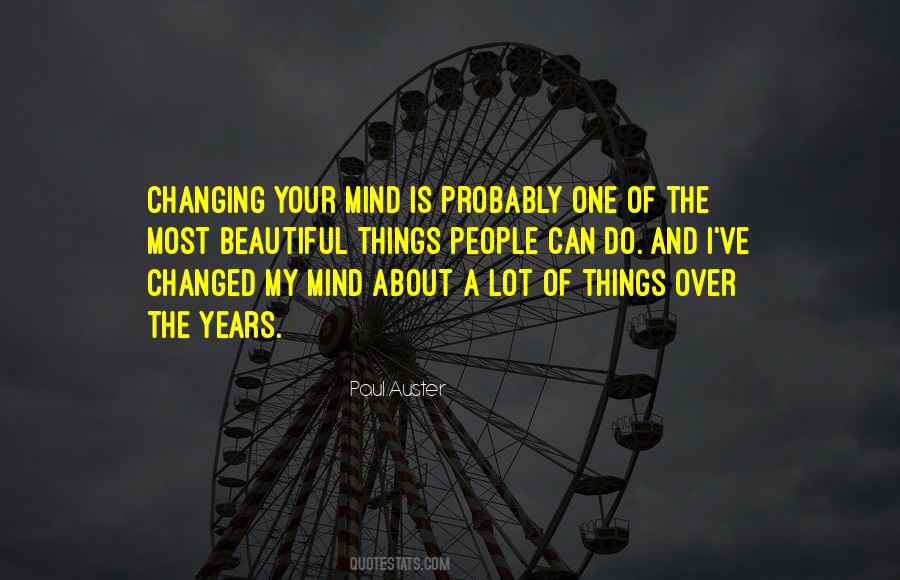
#48. How can you think about the world without factoring in the unforseen, the fluke event?
Paul Auster
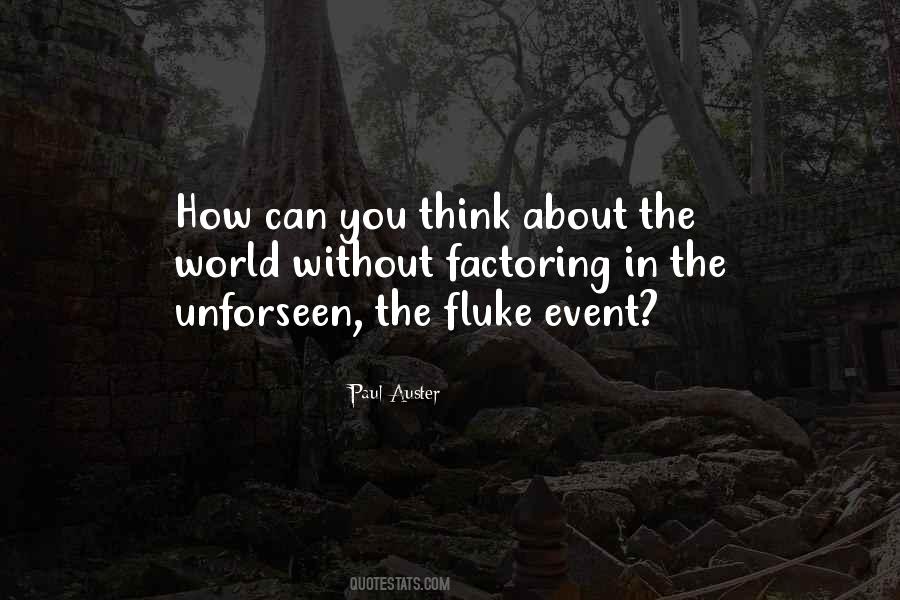
#49. Rather than punch the girl in the face, he abruptly stood up from his seat and walked away.
Paul Auster

#50. I don't read reviews any more, but I'm told by my publisher who gives me an account of what people have been writing and it's been a very split kind of response.
Paul Auster
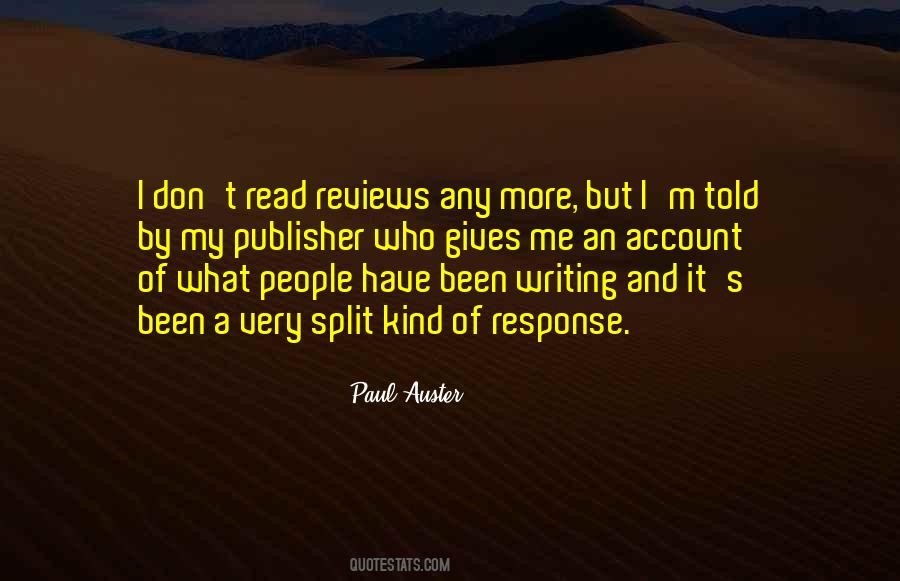
#51. Our lives carry us along in ways we cannot control, and almost nothing stays with us. It dies when we do, and death is something that happens to us every day.
Paul Auster

#52. This was the first time he had seriously confronted what he was doing, and the force of that awareness came very abruptly - with a surging of his pulse and a frantic pounding in his head. He was about to gamble his life on that table, and the insanity of that risk filled him with a kind of awe.
Paul Auster
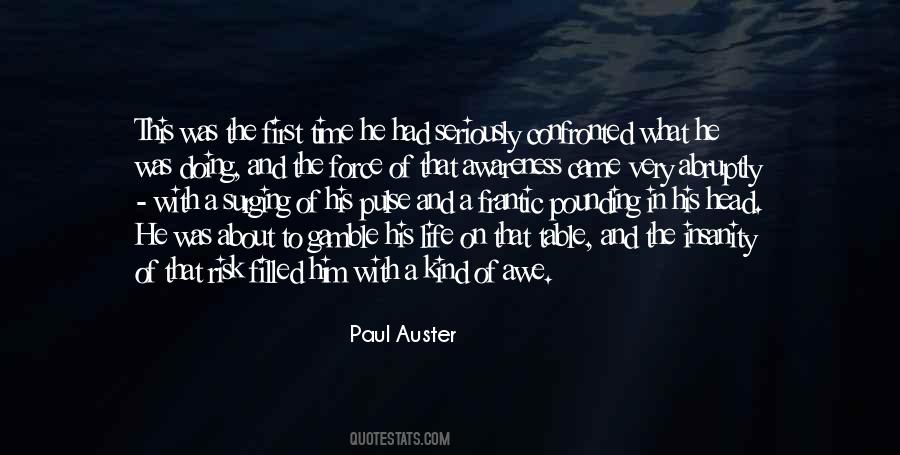
#53. There is a line from the Marina Tsvetaeva poem I'm so fond of: "In this most Christian of worlds/ All poets are Jews." What she means is that writers and artists are outside the normal flow of daily life, the normal flow of society in general.
Paul Auster
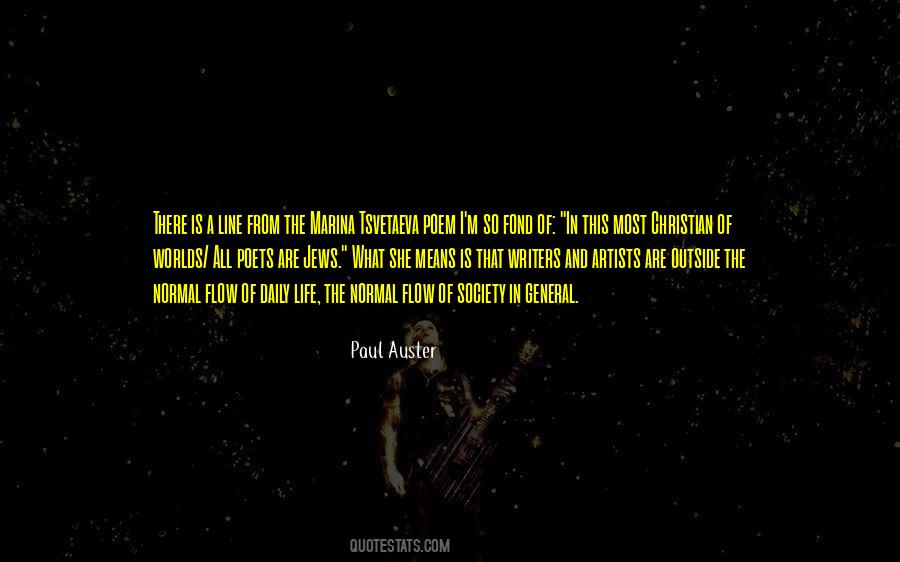
#54. We all want to believe in impossible things, I suppose, to persuade ourselves that miracles can happen.
Paul Auster
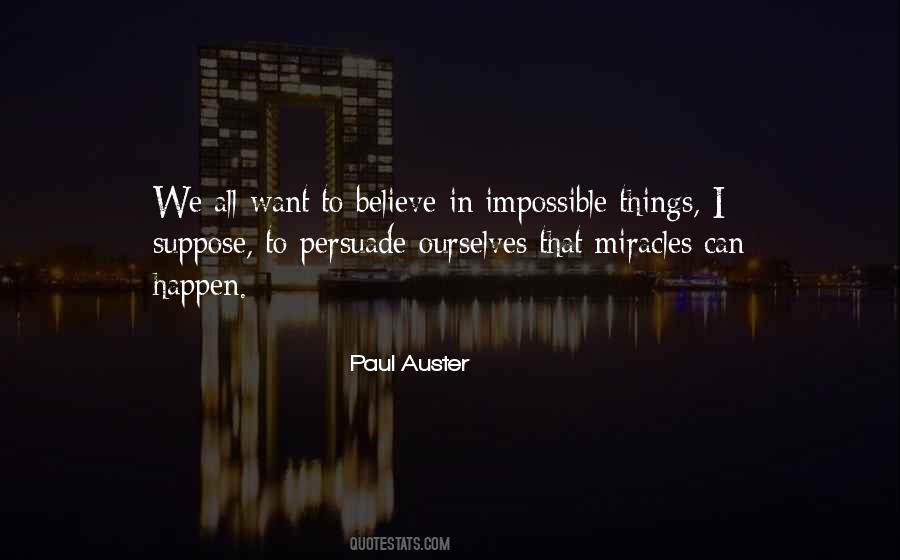
#55. For me, books were not the containers of words so much as the words themselves, and the value of a given book was determined by its spiritual quality rather than its physical condition.
Paul Auster
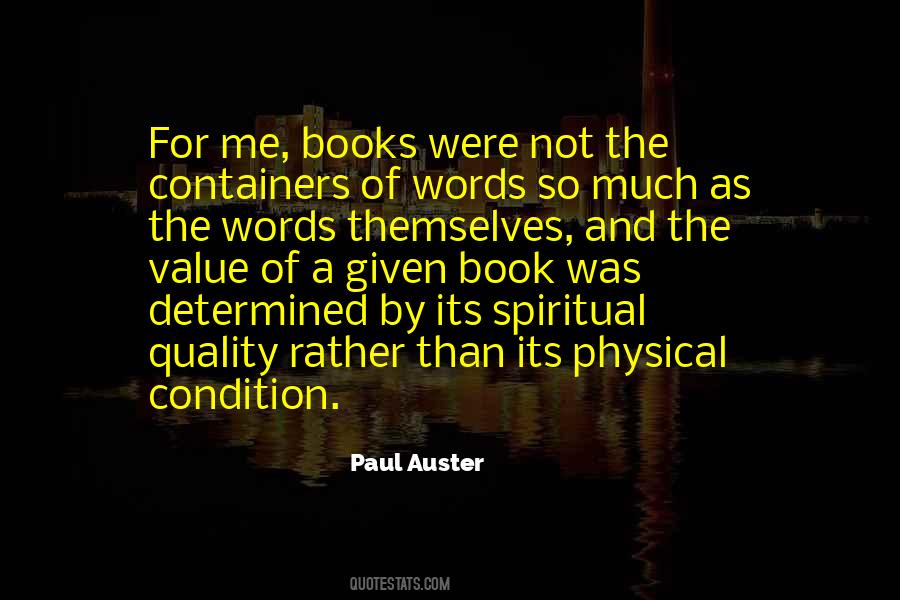
#56. I believe that every artist, in one way or another, is a wounded person. It's not natural to make art.
Paul Auster
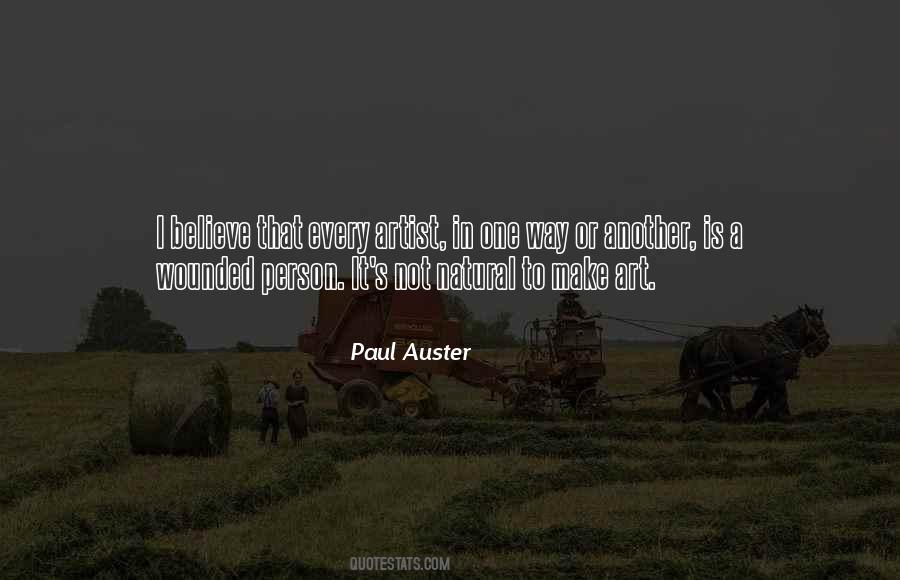
#57. What better portrait of a writer than to show a man who has been bewitched by books?
Paul Auster
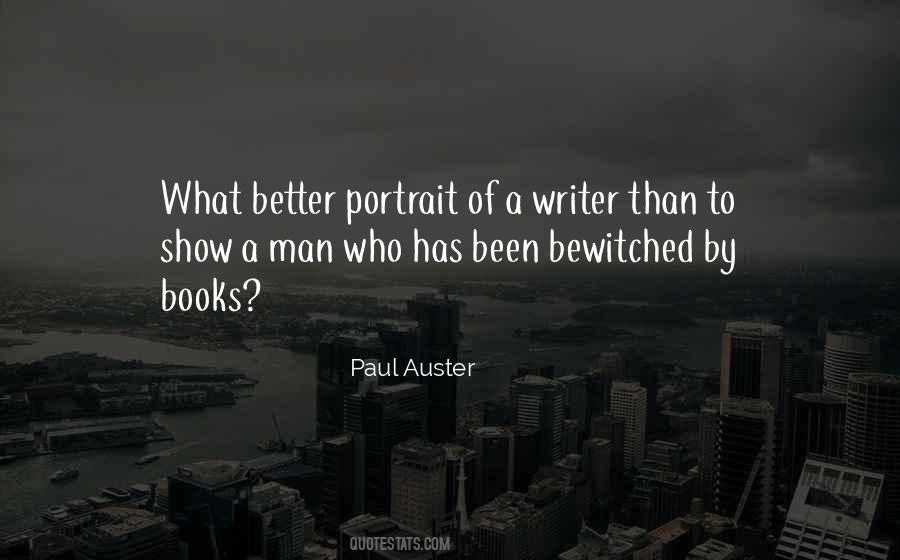
#58. He was not trying to buy happiness, but simply an absence of unhappiness.
Paul Auster
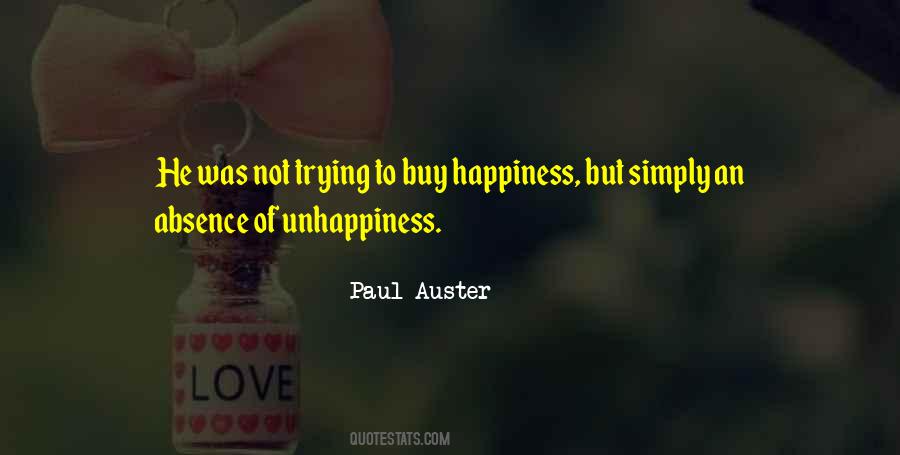
#59. The childhood scenes [ in The Tree of Life] are tremendous. My favorite moment is when the mother levitate - for three seconds. Of course, this is how a child thinks of his mother.
Paul Auster
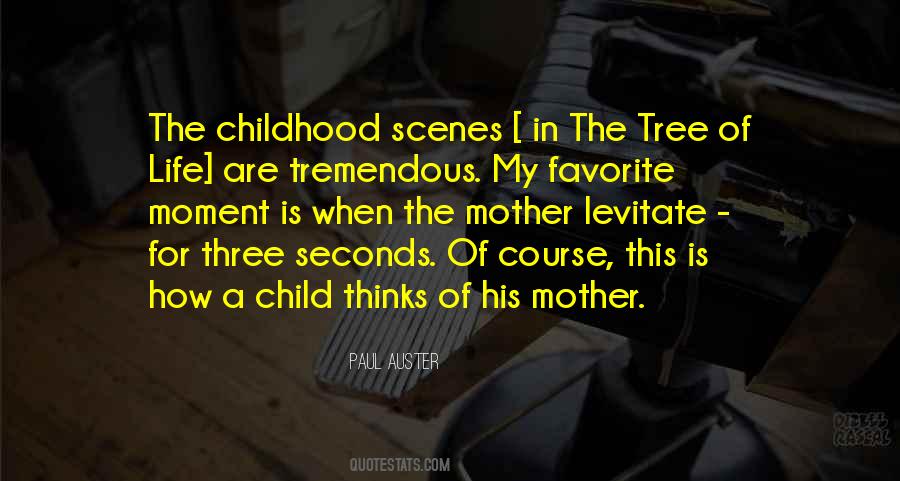
#60. The world is governed by chance. Randomness stalks us every day of our lives.
Paul Auster
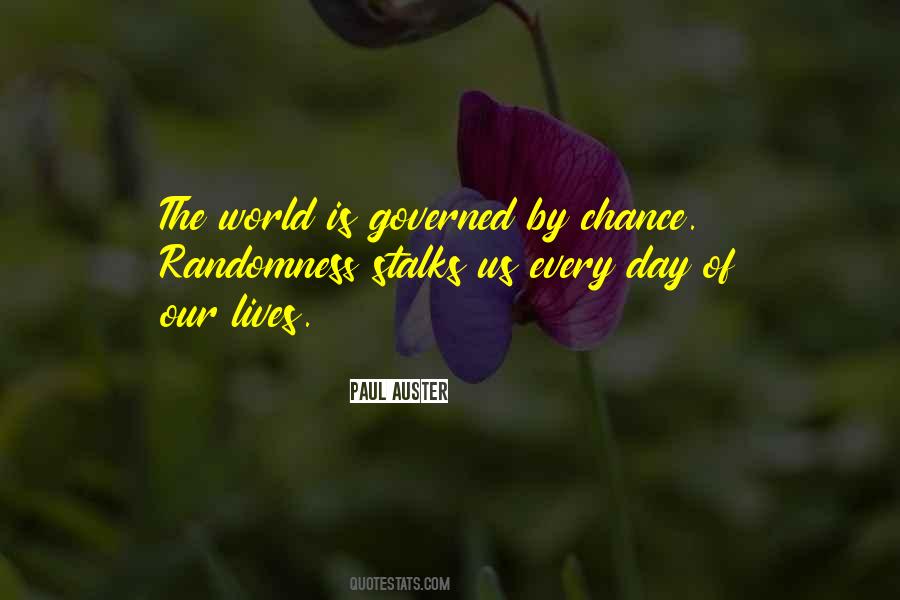
#61. Movies are not novels, and that's why, when filmmakers try to adapt novels, particularly long or complex novels, the result is almost always failure. It can't be done.
Paul Auster
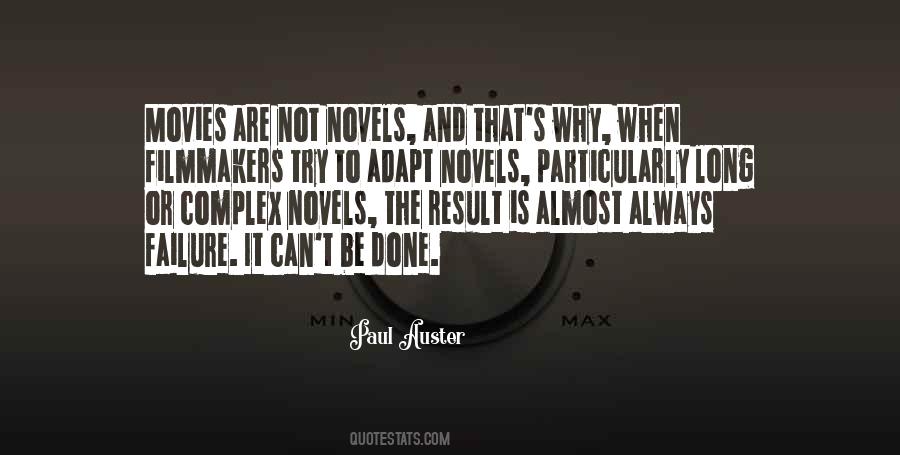
#62. And just then, in one of those unbidden flashes of insight, it occurred to him that nothing was meaningless, that everything in the world was connected to everything else.
Paul Auster
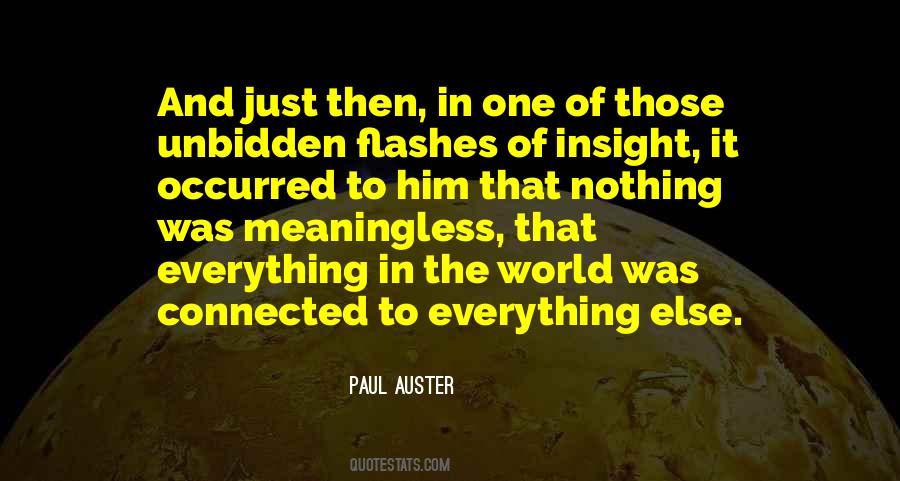
#63. I've never been able to witness the birth of an idea. It seems as if one second, there's nothing particularly going on, and the next second, something is there. It's coming up out of my unconscious, up from places that I don't even know where they are.
Paul Auster

#64. Life got in the way
two years in the army, work, marriage, family responsibilities, the need to earn more and more money, all the muck that bogs us down when we don't have the balls to stand up for ourselves
but I had never lost my interest in books.
Paul Auster
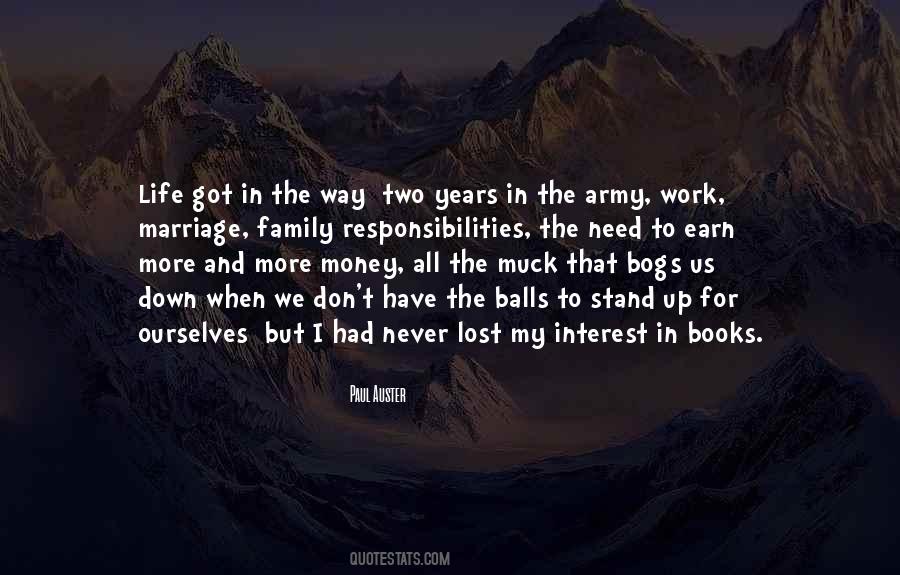
#65. Our lives are no more than the sum of manifold contingencies, and no matter how diverse they might be in their details, they all share an essential randomness in their design: this then that, and because of that, this.
Paul Auster
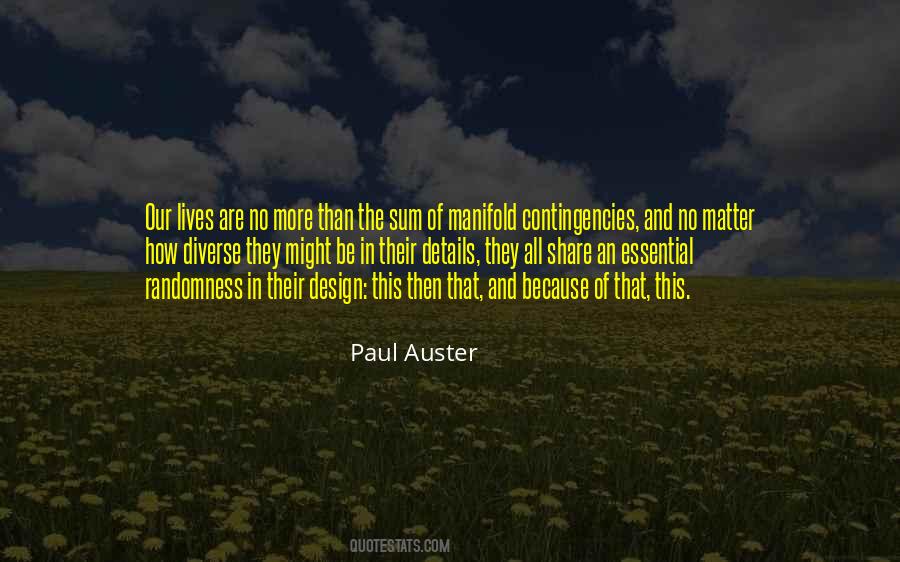
#66. A pulverized apple and a pulverized orange are finally the same thing, aren't they? You
Paul Auster
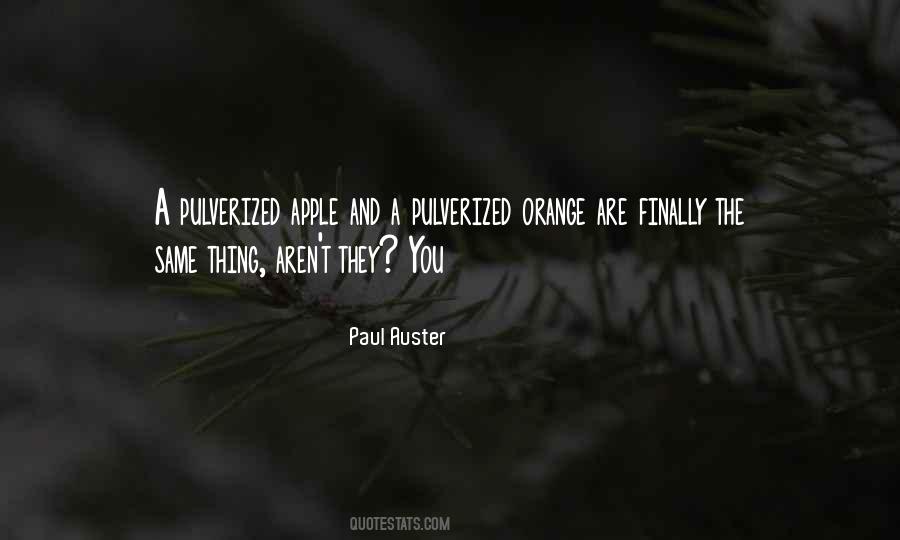
#67. What at first had seemed to be no more than a small bump in the road was turned into a full-scale misfortune
Paul Auster

#68. Raymond Chandler invented a new way of talking about America, and America has never looked the same to us since.
Paul Auster
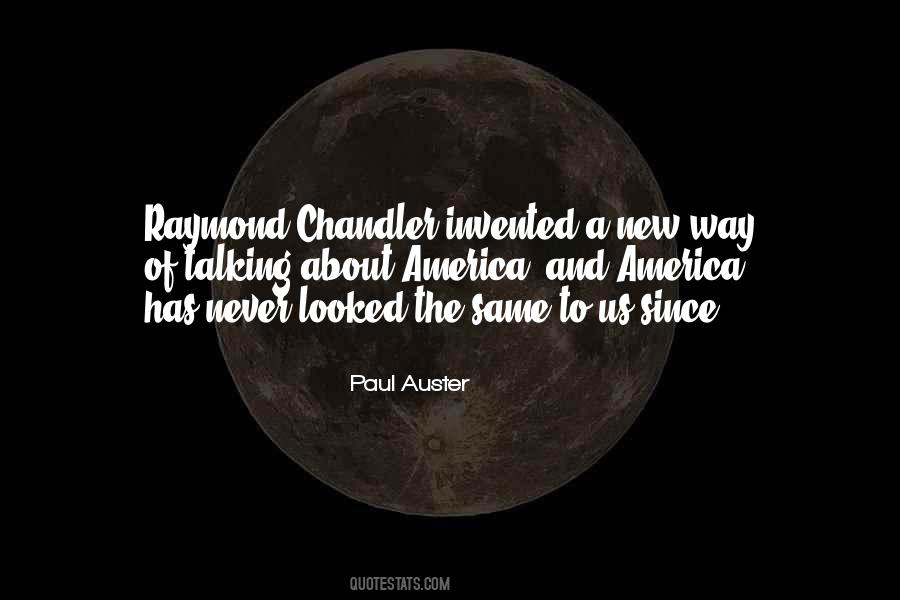
#69. I woke up one day and thought: 'I want to write a book about the history of my body.' I could justify talking about my mother because it was in her body that my body began.
Paul Auster
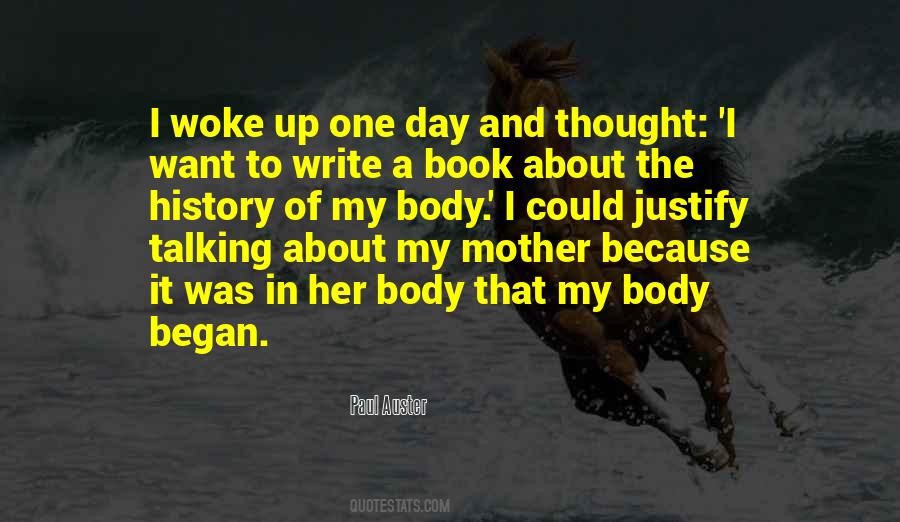
#70. If the world weren't such a beautiful place, we might all turn into cynics
Paul Auster

#71. As a poet or a novelist or a painter, you are pushing yourself all the time, always looking for a new way to approach something, challenging yourself and never, never trying to write the same book twice.
Paul Auster

#72. My mind was a blithering gush, a pandemonium of rhapsodic thoughts.
Paul Auster
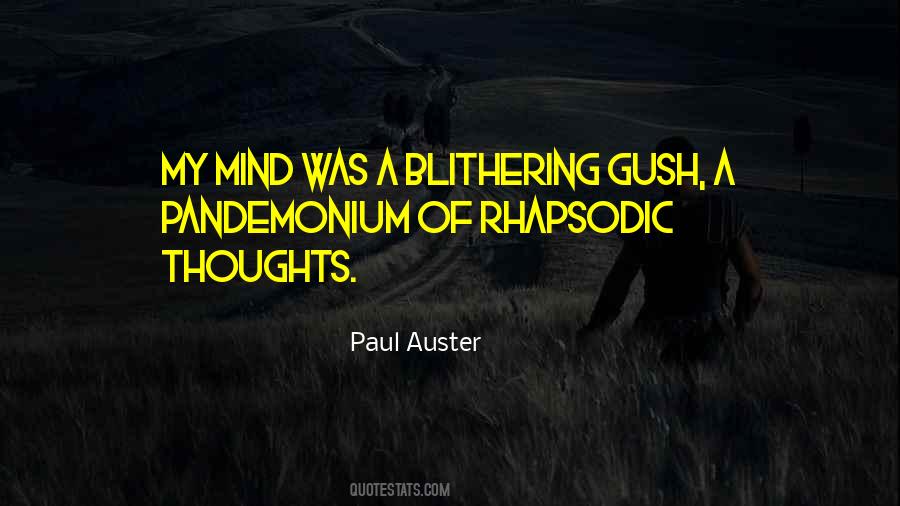
#73. When I write, the story is always uppermost in my mind, and I feel that everything must be sacrificed to it. All elegant passages, all the curious details, all the so-called beautiful writing - if they are not truly relevant to what I am trying to say, then they have to go.
Paul Auster
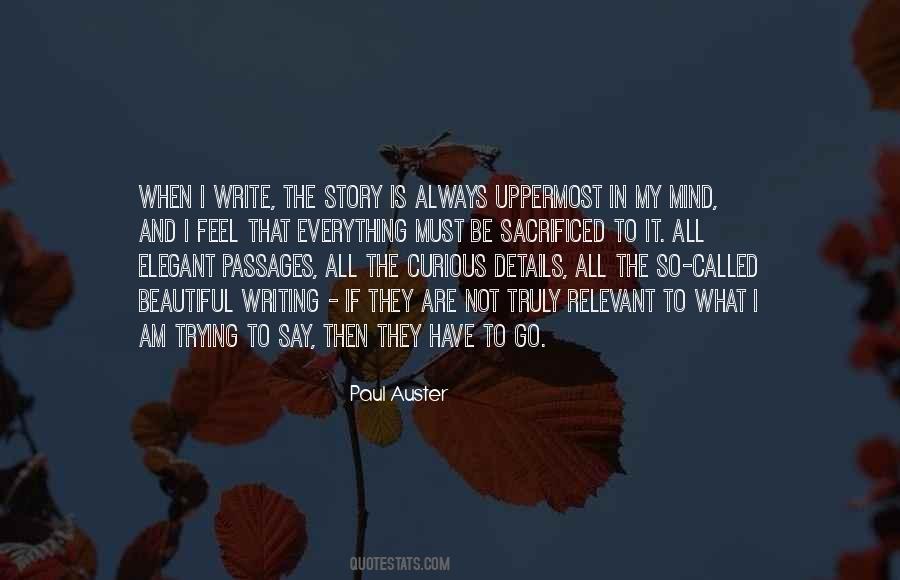
#74. I was perfectly calm and perfectly insane, perfectly prepared to accept what the moment had offered. Indifference of that magnitude is rare and because it can be achieved only by someone ready to let go of who he is, it demands respect. It inspires awe in those who gaze upon it.
Paul Auster
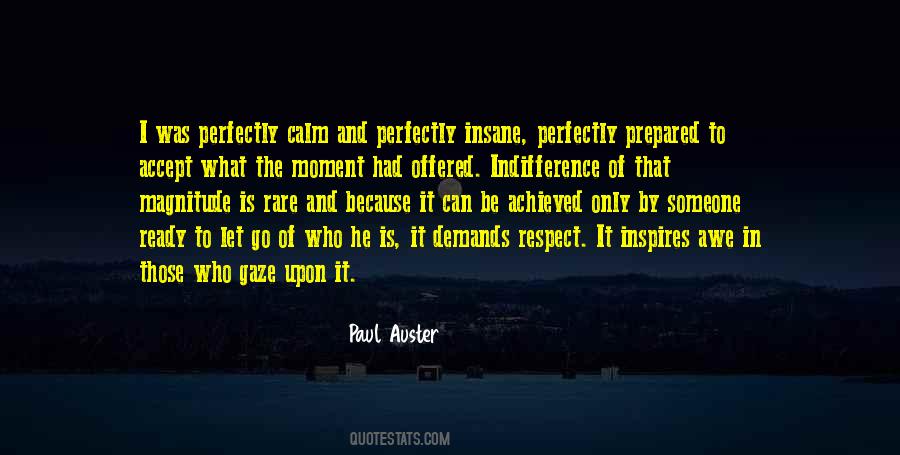
#76. And that's why books are never going to die. It's impossible. It's the only time we really go into the mind of a stranger, and we find our common humanity doing this. So the book doesn't only belong to the writer, it belongs to the reader as well, and then together you make it what it is.
Paul Auster

#77. In spite of his physical efforts, he understands that he is afraid to go on reading the typescript. Why this fear should have taken hold of him is something he cannot account for. It's only words, he tells himself, and since when have words had the power to frighten a man half to death?
Paul Auster
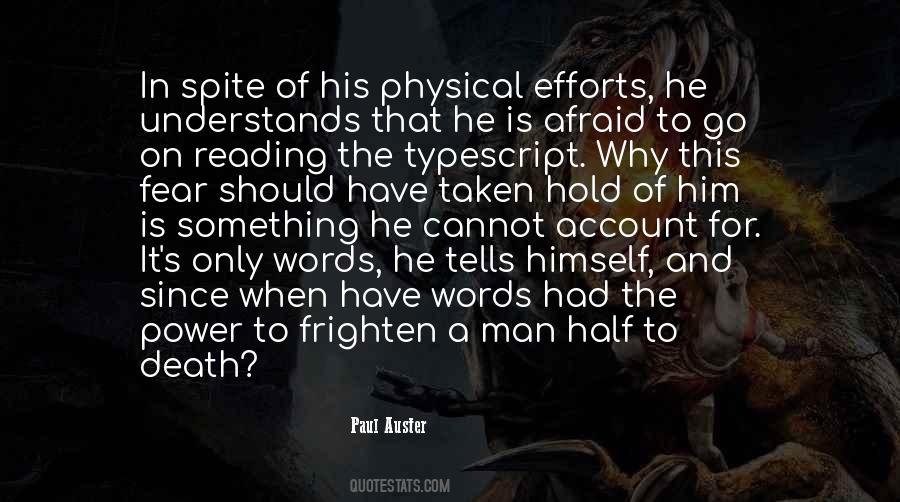
#78. Poets are everywhere now, but they talk only to each other
Paul Auster
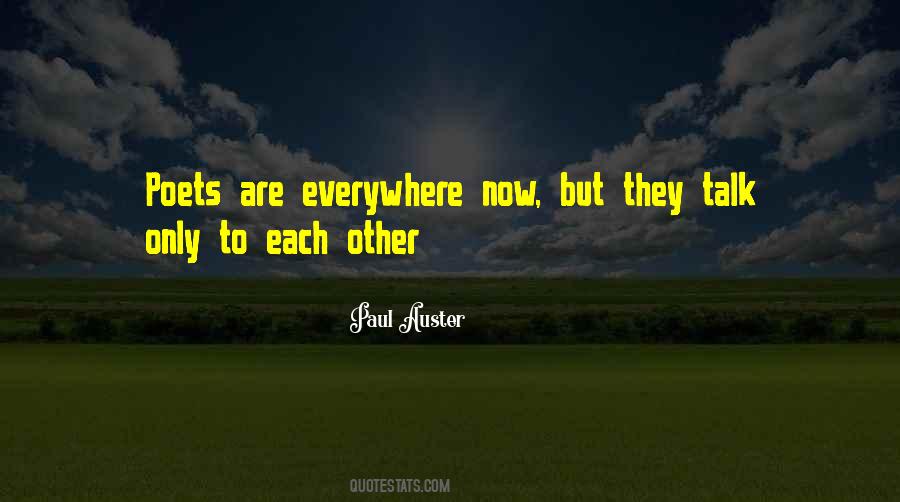
#79. I don't have all the facts. And I might misremember. As a matter of fact, after I finished Winter Journal, I realized that I'd gotten someone's name wrong.
Paul Auster
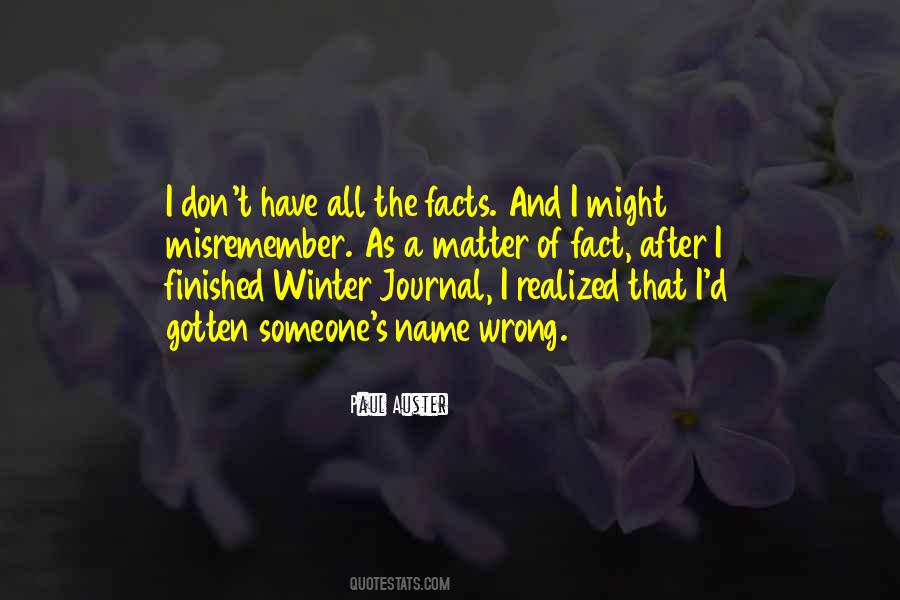
#80. A crisscross of light and shadow began to form on the pavement in front of him, and it was a beautiful thing to behold, he felt, a small, unexpected gift on the heels of such sadness and pain.
Paul Auster
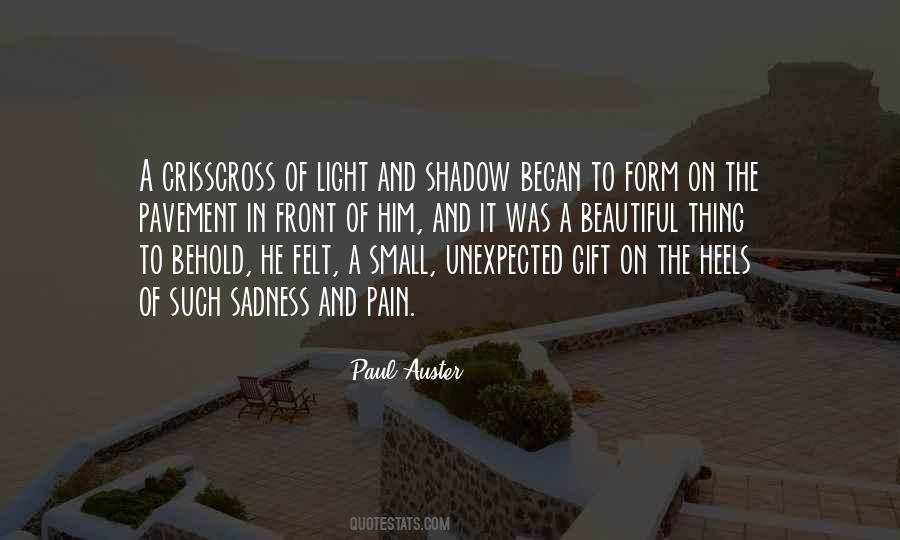
#81. The Adlers were diminishing. They had begun to look like one of those families in which no one got to be very old.
Paul Auster
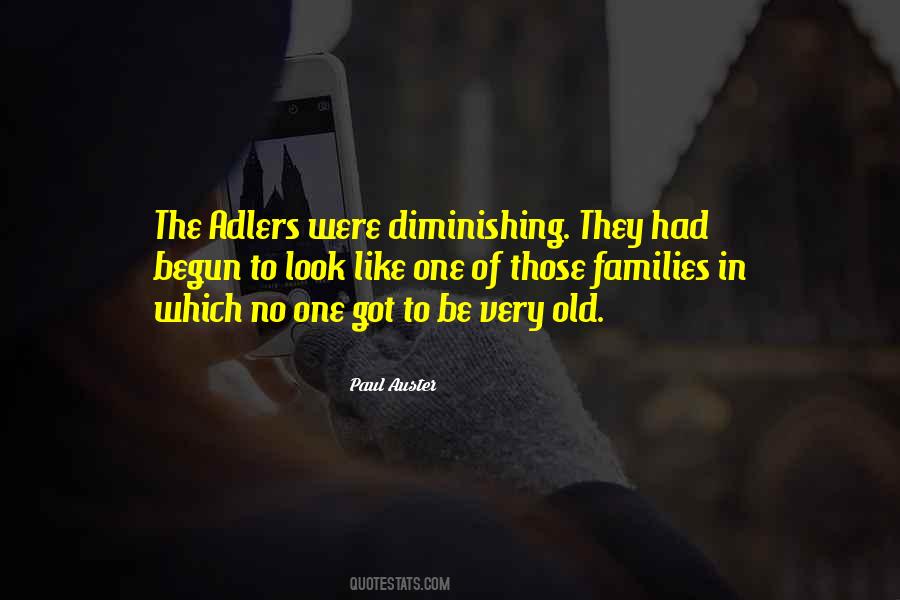
#82. In the end, each life is no more than the
sum of contingent facts, a chronicle of chance intersections, of flukes, of random events that divulge nothing but their own
lack of purpose.
Paul Auster

#83. Shit is a serious business, and anyone caught dumping it in the streets is arrested. With
Paul Auster

#84. Money's important. Everyone cares about money. And when you don't have money, money becomes the overriding obsession of your life.
Paul Auster
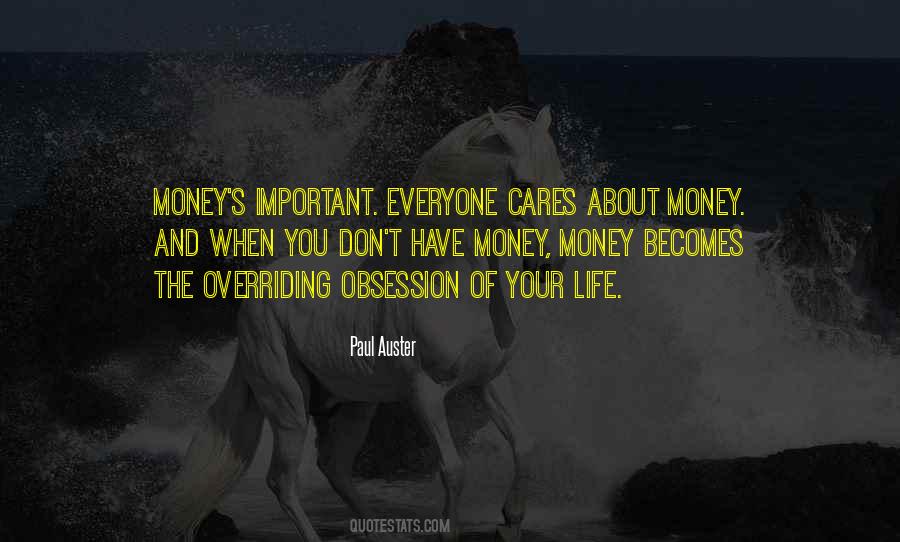
#85. Nothing lasts, you see, not even the thoughts inside you. And you musn't
waste your time looking for them. Once a thing is gone, that is the end of it.
Paul Auster
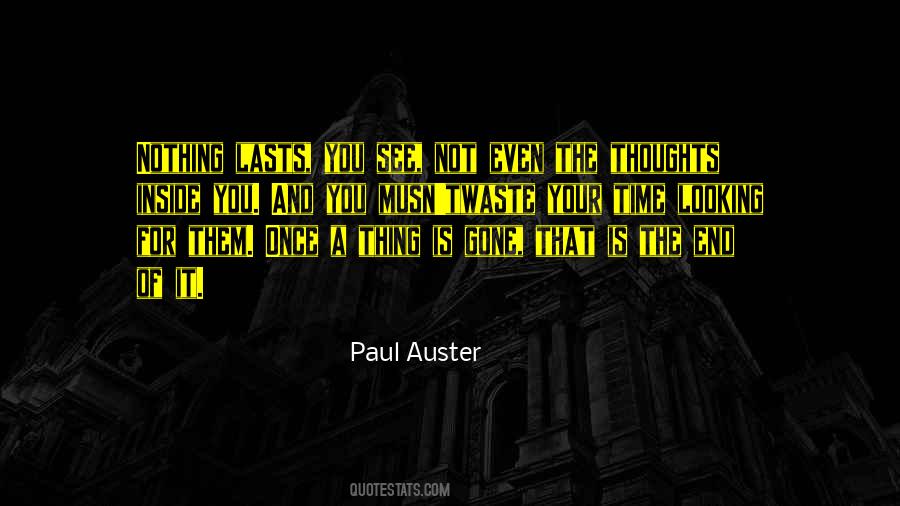
#86. Reason and memory are nearly always at odds.
Paul Auster
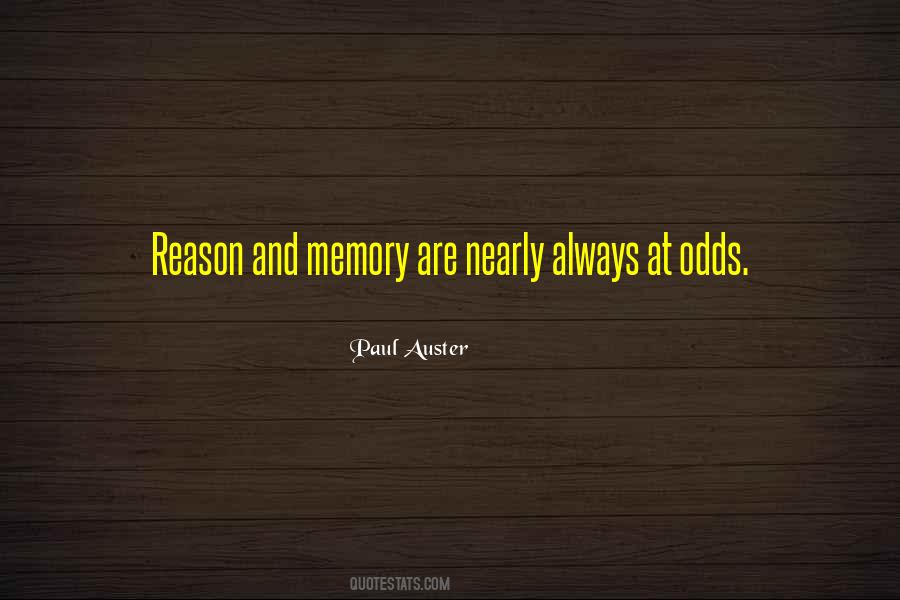
#87. The story is not in the words; it's in the struggle.
Paul Auster
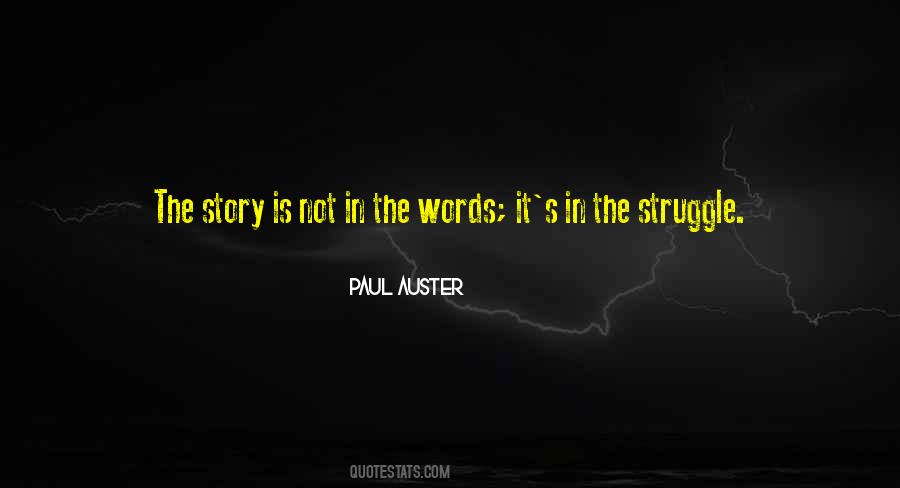
#88. The people closest to him had learned to accept this absence,to treat it as the fundamental quality of his being.
Paul Auster

#89. So it goes as I work my way down the page, and each cluster of marks is a
word, and each word is a sound in my head, and each time I write another
word, I hear the sound of my own voice, even though my lips are silent.
Paul Auster
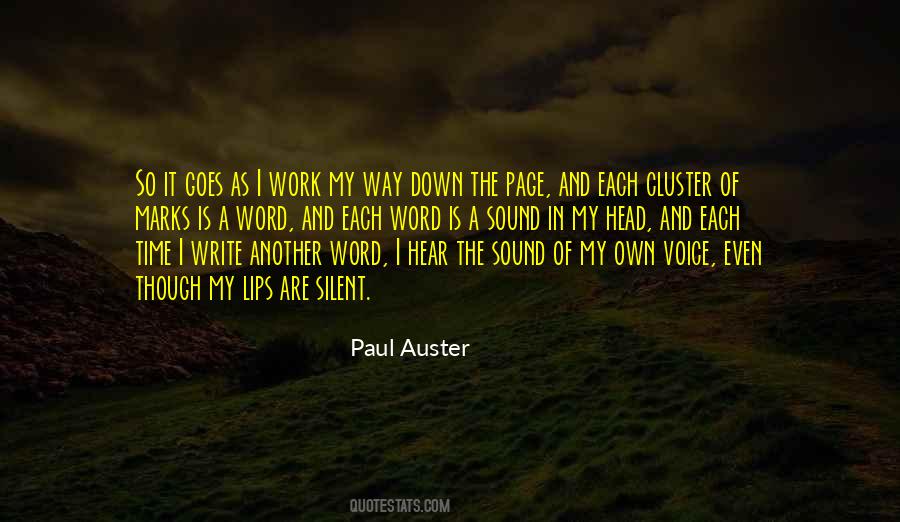
#90. You see the film, you might be entertained, and if it's not a great film, it loses its power very quickly. I think even simply acceptable books stay with us a lot longer.
Paul Auster

#91. I barely can go shopping for clothes. I find it difficult to walk into stores. The whole thing bores me so much.
Paul Auster

#92. Stories without endings can do nothing but go on forever, and to be caught in one means that you must die before your part in it is played out.
Paul Auster
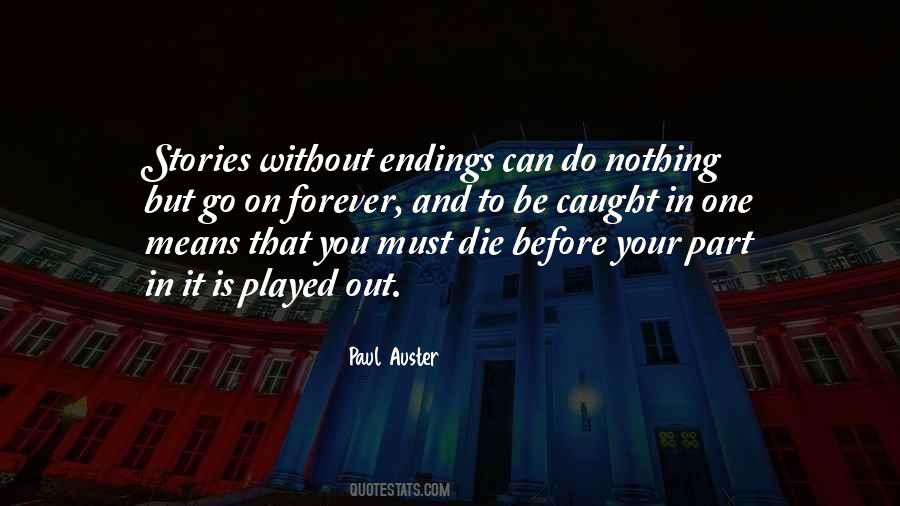
#93. Farts come from no
one and nowhere; they are anonymous emanations that belong
to the group as a whole, and even when every person in the
room can point to the culprit, the only sane course of action is
denial.
Paul Auster
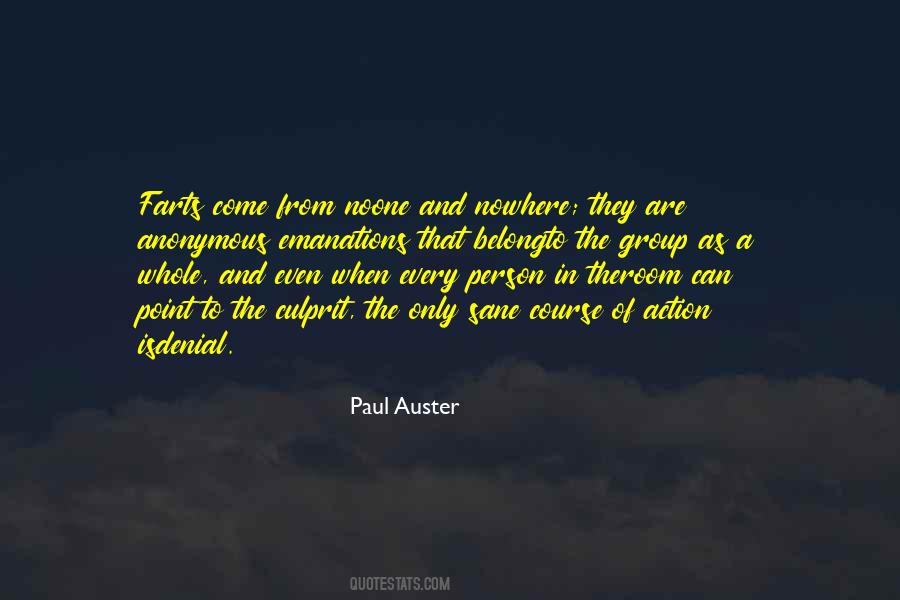
#94. Human beings need stories, and we're looking for them in all kinds of places; whether it's television, whether it's comic books or movies, radio plays, whatever form, people are hungry for stories.
Paul Auster
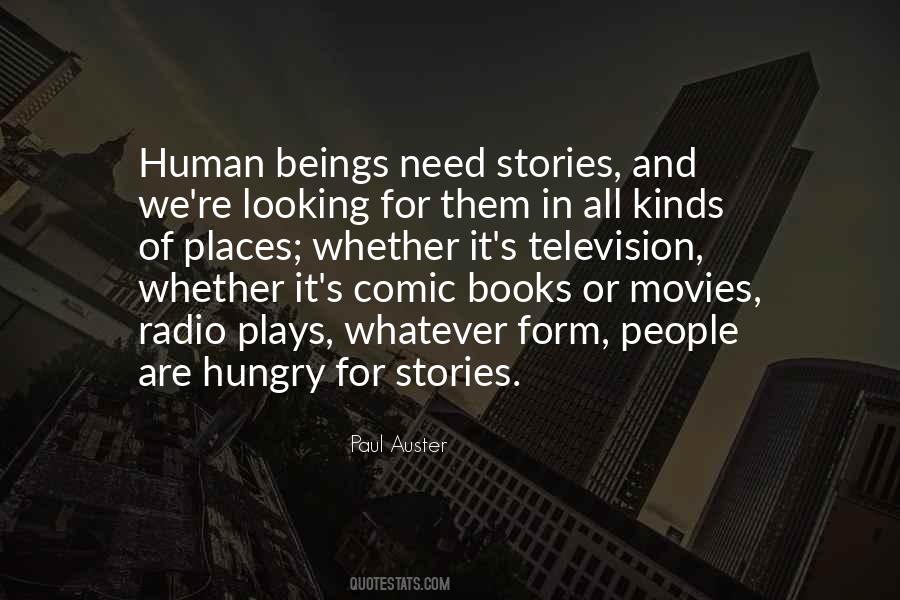
#95. Medical care for the entire country seems to me a basic right. If every other country in the West can do it, why can't we?
Paul Auster

#96. I think it's a very good thing to leave your country and look at it from afar.
Paul Auster
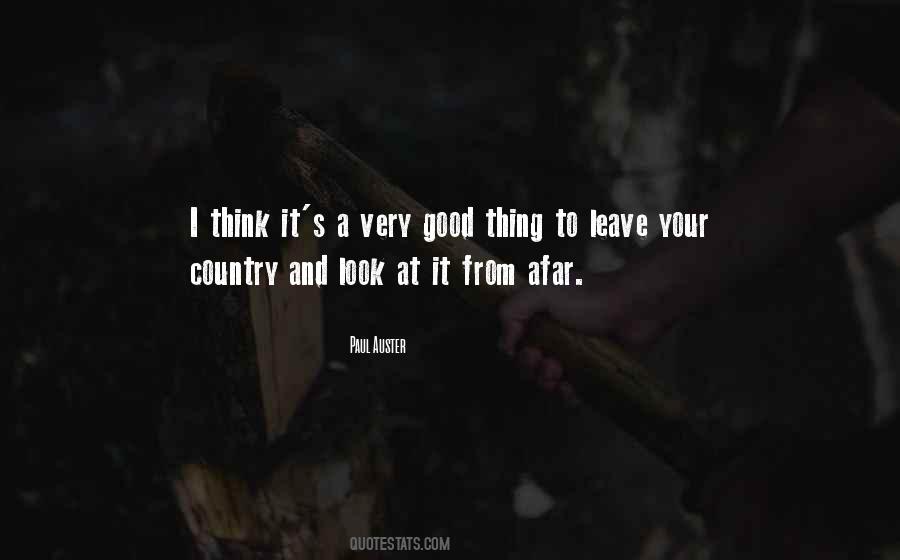
#97. I think people are trying out ideas with the new technology and it's too early to say where it's going exactly. But again, whether it's digital or paper, it doesn't matter. It's words that somebody is reading and getting an experience out of that reading. That's all that really matters.
Paul Auster
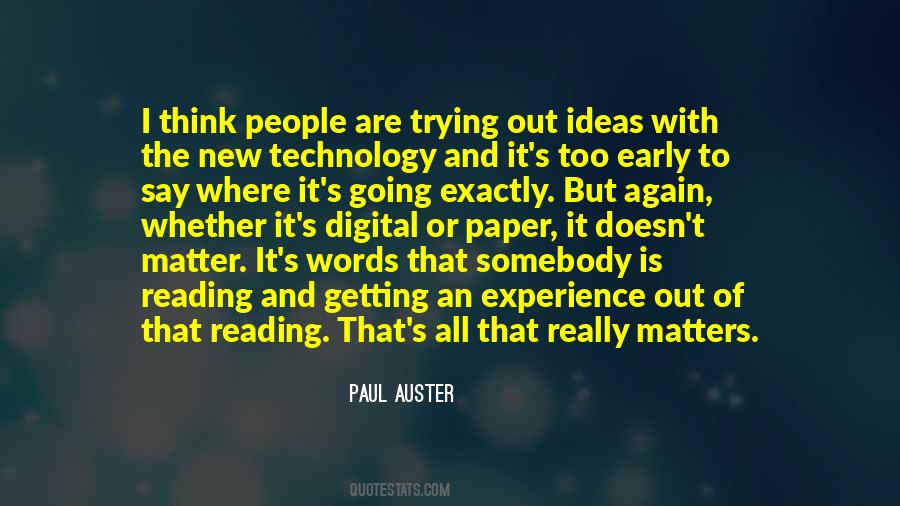
#98. It was a wrong number that started it, the telephone ringing three times in the dead of night, and the voice on the other end asking for someone he was not.
Paul Auster

#99. The fiction is not autobiographical. Maybe to some extent it is, of course.
Paul Auster
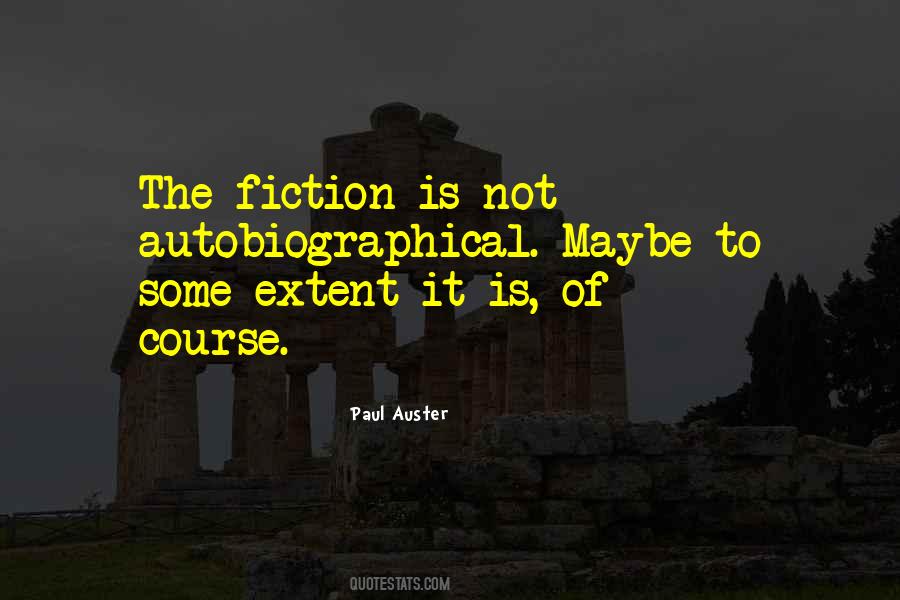
#100. I don't think that you can be prescriptive about anything, I mean, life is too complicated. Maybe there are novels where the author has not in the least thought about it in terms of film, which can be turned into good films.
Paul Auster
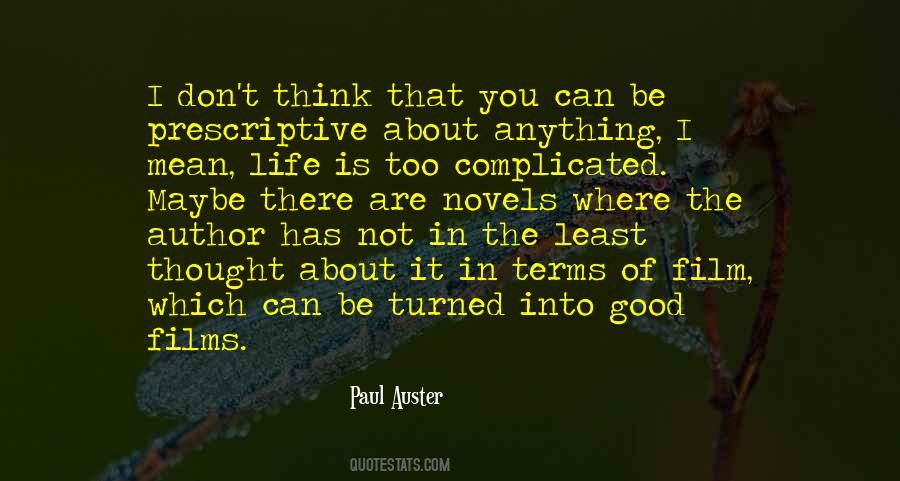
Famous Authors
Popular Topics
Scroll to Top










































































